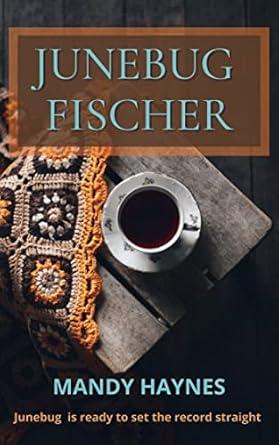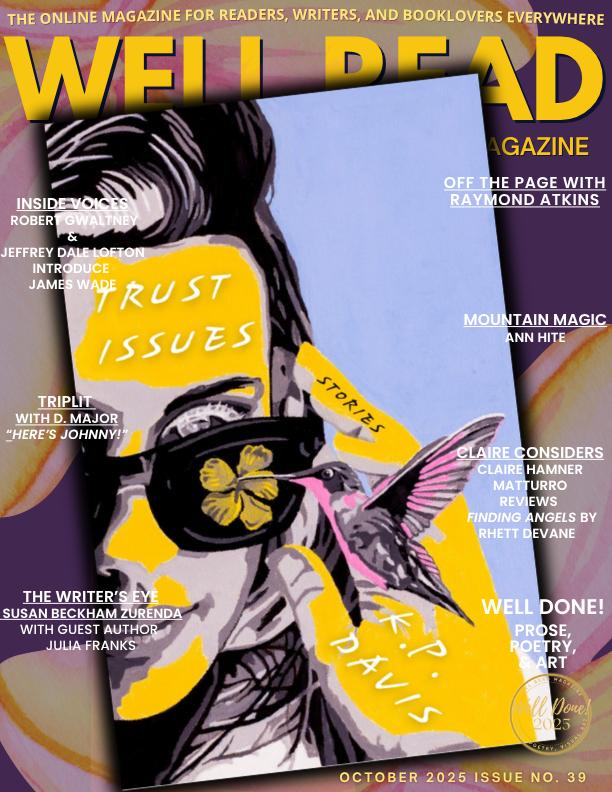

Trust Issues: Stories
K.
P. Davis
Someone or something lurks around every corner, but K.P. Davis’s characters have come prepared.These are women carrying on their daily struggles in a dangerous world, striving and searching for safety. They include Nell, an antisocial, nomadic, shade-tree mechanic and getaway driver; ‘Bula, an odd girl who talks to animals; and a whole host of others who follow lonely paths spreading empathy while kicking ass. The endings aren’t always happy, and these women have plenty of reasons to be afraid, but they keep on going. The twenty sharp, poignant, and biting stories in Trust Issues comprise a stunning beacon for hard-headed folk fighting to be heard when nobody listens.
“Kim Davis is a master of moments. In Trust Issues, she brings her keen eye to the lives of ordinary people not often seen in literary fiction. With great skill, Davis shows how even the most mundane moments are fraught with meaning.”
—Maurice Carlos Ruffin author of The American Daughters
“Davis hits hard and spares readers fantastical notions of the American Dream. These stories expose human vulnerability and ruthlessness through immersive and urgent scenes.”
—Jen Knox author of Chaos Magic
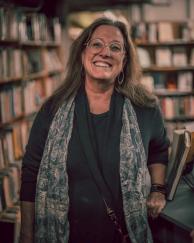
KIMBERLY PARISH (K.P.) DAVIS was once upon a time an adrenaline junkie. Director and founder of Madville Publishing, her fiction has appeared in Kestrel, WELL READ Magazine, Vox Populi, Writing Texas, and elsewhere. Kim grew up in Texas, where she still lives.
Author photo © Jacqueline Davis
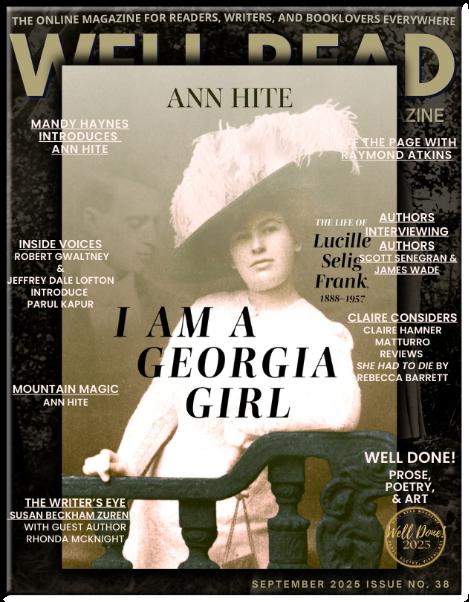
Did you miss last month’s issue? No worries, click here to find it as well as all the past issues.


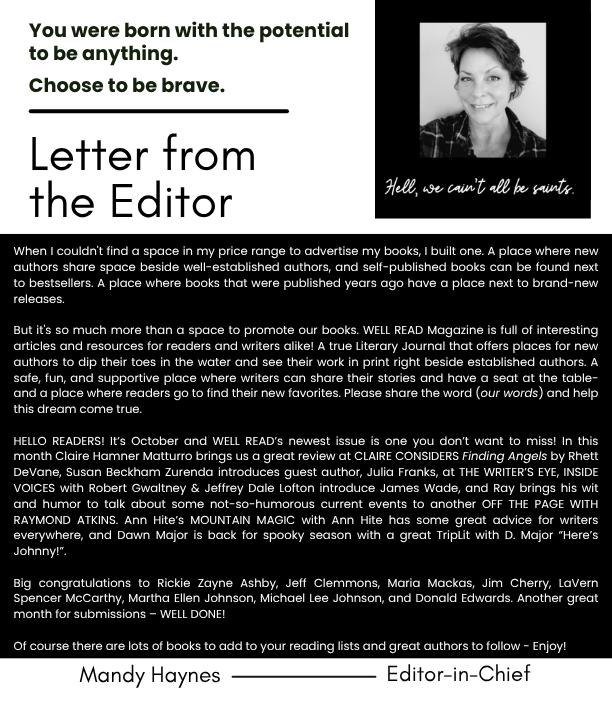




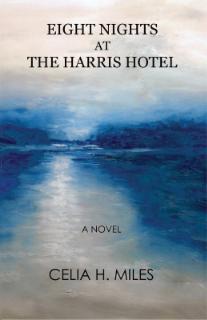
Eight Nights at the Harris Hotel
by Celia Miles
Mrs. Wheeler, a rich elderly widow, arrives at The Harris Hotel, on the Hebridean island Lewis and Harris off the Scottish coast.
There her memories of a dust bowl youth, military service, Chicago’s business and art venues, along with multiple marriage interweave with a guest’s murder.
With the help of her young aide from the island, Mrs. Wheeler is determined to solve the crime … even when experience and innocence are sometimes at odds.
Celia Miles’ latest novel, Eight Nights at the Harris Hotel, takes a fresh turn from her well-loved mystery series centered around Appalachian grist mills.
“Inspiration struck when I heard my doctor whistling Mendelssohn’s overture, The Hebrides,” Miles explains. The Hebrides, an archipelago off Scotland’s west coast, became the perfect setting for her story.
“Having visited the islands frequently, I suddenly envisioned my main character, Mrs. Grant Worthington Wheeler, there,” she adds. Set on the Hebridean island of Lewis and Harris, the novel follows its elderly protagonist as she navigates travel, uncovers a murder, and teams up with a spirited young island girl to solve the mystery…”
Five Star Reader Review: “Couldn't put the book down! This novel is the quality of those you find on the New York Times Best Sellers list. I've read several novels across the last many months and this one sits among the top! The heart of the story for me was learning about Mrs Wheeler's tumultuous past. The author doesn't shy away from difficult topics - abuse, rejection, homosexuality, divorce, misogyny and others. I found myself laughing at times and crying at others.”
Celia Miles, a native of western North Carolina, lives, and writes from Asheville. She writes in various genres and her fiction—all women-oriented—reflects her interests in old grist mills and Neolithic sites around the world.
She attended Brevard and Berea Colleges and has graduate degrees from UNC-Chapel Hill and IUP in Pennsylvania. She taught at Brevard College and retired from Asheville-Buncombe Technical Community College as an instructor.
Her three clean and cozy mysteries feature intrepid Marcy Dehanne, an instructor turned grist mill consultant, who finds that old mills too often harbor a dead body: The Body at Wrapp's Mill; The Body at StarShine Mill; and, 2020, The Skeleton at the Old Painted Mill.
Her other published works include seven novels and two short story collections which are available on Kindle, in some regional bookstores, or directly from the author: celiahoopermiles@gmail.com.
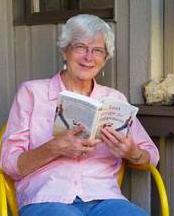

Instars by DeborahZenhaAdams “Reading Deborah-Zenha Adam’s poems felt like being told secrets filled with wisdom, learned and gained from a lifetime of lessons, such as this: “I tell you now: never // trust the logic of a story // moving always forward” and “the storm is always coming, and the // truth lives in the wind.” These poems look back and understand the world’s intricacies in a whole new way, with a greater depth: “sacrificing // things we’d rather not, learning the art // of trade-off.” The collection offers truths—“I am an illusion”—and asks unanswerable questions, just as this life does. Magic and myth and prophesy thread their way through this book, and what becomes bound is strength, fortitude, and a new kind of enlightenment—hard-won and certain.”
~Shuly
Xóchitl Cawood, author of
Something So Good It Can Never Be Enough:
poems
“Instars, a new collection of poems by Deborah-Zenha Adams, is governed by a metaphor – the phases insects undergo as they pass, molting and transforming along the way, from egg to adult. At the end of their journey, they join the natural world to live out their earthly existences.
Following the same kind of thematic arc, this book takes the reader on a journey of poems that reveal the fragility and uncertainties of human life, often with metaphorical, quasi-allegorical renderings of experience. The variety of poems, in form and content, makes this journey rich, layered, and thought-provoking. And of her many strengths as a poet, the most important is her strong, surprising, but spot-on closures. “Instars” clearly expresses an existential acceptance of what is, with no whining along the way, no talk of destiny and fate, but with the clear sense that changes and transformations are not only right, but inevitable and natural.”
~ Malcolm Glass, author of Her Infinite Variety (Finishing Line Press, 2023)
Deborah-Zenha Adams is an award-winning author of novels, short fiction, CNF, and poetry, and served as executive editor of Oconee Spirit Press for ten years. You are invited to visit her website to read samples of her work. www.Deborah-Adams.com
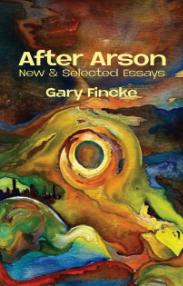
This essay collection spans a lifetime’s worth of characters, settings, themes, and ways of organizing. It is, after all, a collection of Gary Fincke’s best work. Yet, for the variety of content covered, from coming-of-age to family to nuclear weapons to space exploration to mass shootings to rock attacks on cars to the author’s mother’s obsession with potato chips, this collection has a durable thread that ties them all together: the need to observe and record everything. Struggle and resilience. Fear and pleasure. Faith and despair. Love and loathing.All of those tensions are closely examined within the shadow cast by death.As Gary Fincke writes, “Somewhere, early every day, I think the acolyte of terror dreams our bodies as it decides the exact address for delight.” This “thinking,” in essay after essay, is brilliantly articulated in an ever-evolving, contemporary style. The metaphors are beautiful, the prose is clipped and clean, and the reader is constantly surprised by the connections Fincke draws like the one between his daughter and Charles Manson. A panorama of screams, another of hearts, another of headlights, all of them transformed into memoir. The subjects as varied as a four-part exploration of different kinds of hands, a meditation on terror and the fireworks American children know as Sparklers, and eulogies seeded by love of potato chips and crossword puzzles. Like the best essays, all of these “discover” in an intimate, personal way.

Momma May Be Mad: A Memoir is an inventive and striking memoir about motherhood, madness, and the grace of second and third chances. Kerry Neville shares the story of how she was caught in the perfect storm of bipolar disorder, anorexia, and alcoholism when her children were young and her marriage failing and how she found her way back to joy and hope. Electric shock therapy, hospitalizations, and even an exorcism were desperate, if failed, lifelines. But even in that dark chaos, she held fast to an abiding belief in love and fought to regain her own life and her life with her children.
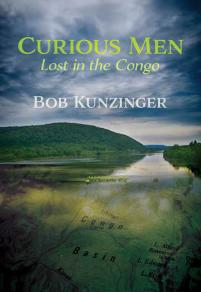
To be released January 4, 2026.
An experienced adventurer partners with an innocent nineteen-year-old to plan a journey on the most dangerous river in the world. What starts as one man’s dream ends up as another man’s nightmare. It was a time when pushing our limits knew no boundaries and being nineteen had no restrictions.

MADVILLE PUBLISHING seeks out and encourages literary writers with unique voices. We look for writers who express complex ideas in simple terms. We look for critical thinkers with a twang, a lilt, or a click in their voices. And patois! We love a good patois. We want to hear those regionalisms in our writers’ voices. We want to preserve the sound of our histories through our voices complete and honest, dialectal features and all. We want to highlight those features that make our cultures special in ways that do not focus on division, but rather shine an appreciative light on our diversity.
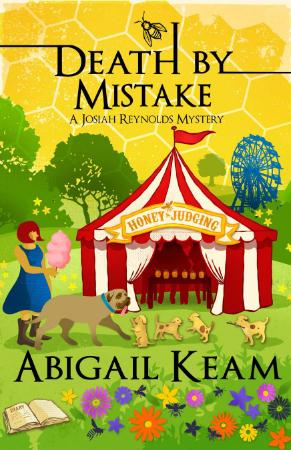
Death By Mistake: A Josiah Reynolds Mystery 22 byAbigail
Keam
In the Bluegrass world of oakcured bourbon, antebellum mansions, and Thoroughbred horse farms are secrets— deadly secrets! Kentucky is not called “the dark and bloody ground” for nothing! Josiah has resigned herself to being alone. Her boyfriend, Hunter left her for an old flame, and Josiah vows not to interfere in his life. She cares for the man and wants him to be happy. So, it comes as a shock when Detective Drake informs her that Hunter has been arrested for the murder of his wife, Kathy Wickliffe. Josiah simply can’t believe Hunter would harm another human being. She must uncover the truth—and fast.
In a world of oak-cured bourbon, antebellum mansions, and Thoroughbred farms, secrets buried in the deep earth are never hidden long. They always surface in the realm of the Bluegrass.
There’s justice, and there is Josiah’s justice!
AWARDS
2010 Gold MedalAward from Readers’Favorite for Death ByA HoneyBee
2011 Gold MedalAward from Readers' Favorite for Death By Drowning
2011 USABOOK NEWS-Best Books List of 2011 as a Finalist for Death By Drowning
2011 USABOOK NEWS-Best Books List of 2011 as a Finalist for Death ByAHoneyBee
2017 Finalist from Readers’Favorite for Death By Design
2019 Honorable Mention from Readers’Favorite for Death By Stalking
2019 Top 10 Mystery Novels from Kings River Life Magazine for Murder UnderABlue Moon
2020 ImadjinnAward for Best Mystery - Death By Stalking
2022 Finalist in Killer Nashville Silver Falchion Finalist for Best Historical Category - Murder UnderAFull Moon
2022 Finalist the Killer Nashville Silver FalchionAward for Best Historical Category - Murder UnderANew Moon
2022 Death By Chance:AJosiah Reynolds Mystery Killer Nashville Silver Falchion Finalist for Best Cozy Mystery
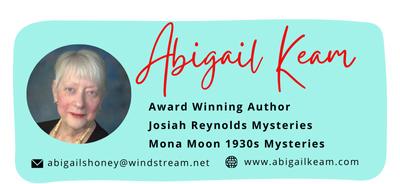
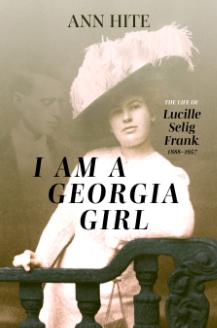
IAm a Georgia Girl: The Life of Lucille Selig Frank, 18881957
byAnn Hite
Twenty-five-year-old Lucille Selig Frank's whole life changed onApril 26, 1913, as the Confederate Memorial Parade marched throughAtlanta, Georgia. Lucille was attending the opera matinee with her mother. Her husband, Leo Frank, sat in his office in the National Pencil Company, where he was superintendent, working on a financial report. The brutal murder of fourteen-year-old Mary Phagan, an employee of Leo's, took place in the pencil factory that day. Lucille's husband would be the last known person to see Mary alive. While much has been written about Mary Phagan's murder and Leo Frank's subsequent trial over the past 115 years, very little has given voice to Lucille Selig Frank and other women connected to the horrific events that took place between 1913-1915. Lucille was part of a mission to make Governor John Slaton aware of the antisemitism being shown to Leo during his arrest and trial. She paid a heavy price for her courage. The story of Lucille and the women connected to this case is as timely today as it was in the early 1900s. This book has many diverse characters, including place which influences the outcome. Within this complexity, Hite's telling of Lucille's story will help others see that antisemitism, the marginalization of women, and mobs taking justice into their own hands cannot be tolerated. How many people were complicit in Leo and Lucille's journey? Was justice truly served? This book leaves the reader to answer these questions.
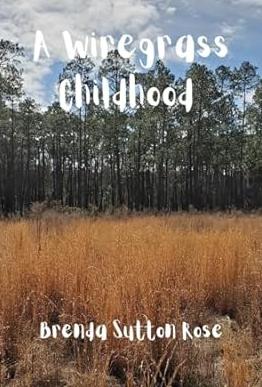
A Wiregrass Childhood by
Brenda Sutton Rose
During the early years of America, in the wiregrass country of Irwin County, Georgia, two brothers and a strange boy meet by chance in the local river that runs deep with memory and myth, history and vitality. Micah is a quiet, sensitive boy with a rare ear for music. His older brother, Isaac, watches the world with the steady eye of someone wiser than his years. And Oak, a Creek boy from a nearby village, carries the weight of his people's stories and the silent worry of what's to come. They didn't mean to find each other, yet somehow it seems fated to be. Friendship grows in the hush of pine forests and the music drifting from Micah's violin--friendship that defies the hard lines drawn between settlers and native people as they navigate a tumultuous time of tension between the Creek natives and white settles.
Blending history and fiction, A Wiregrass Childhood is a tender, haunting story of connection, land, and the quiet courage of boyhood.
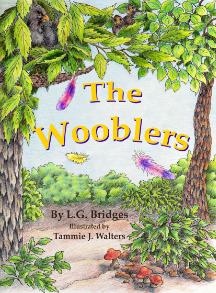

Deep in the Northern Thicket, a cold wind blows. Tradition mandates the flock remain through the winter, and The Elders are big on following the rules. Wooblers are a serious breed who spend most of their time attending to important matters requiring somber faces. But Leader of the Flock has a deep, dark secret . . . and their most misunderstood member has uncovered it.Will theWooblers have the faith to change? Things are about to get more colorful.
Set against the lush yet turbulent backdrop of Nepal during the COVID-19 pandemic, Like Water on Leaves of Taro weaves together themes of loss, resilience, identity, and hope. The memoir honors sacred rituals and everyday heartbreaks, from the thirteenth-day death feast to a father's wish to spare his daughter further grief. Through poetry, reflection, and memory, the author invites readers to witness the quiet strength of family, the complexity of Nepali culture, and the universality of sorrow.
This is not just a story of illness and loss-it is a meditation on what it means to be human, to mourn, to endure, and to carry love forward in a world that feels constantly in flux.
For readers of When Breath Becomes Air, The Year of Magical Thinking, and The Long Goodbye, Like Water on Leaves of Taro offers a moving cross-cultural perspective on grief, devotion, and the enduring lessons of death.
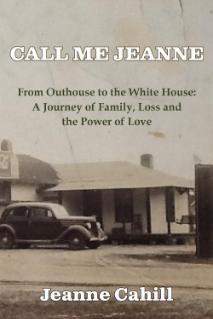
Born in the heart of the Great Depression, Jeanne Cahill's life began on a small South Georgia farm, where she learned resilience, hard work, and the deep value of family. But her journey didn't stop there. From humble beginnings with an outhouse in the backyard to standing in the White House as a trusted advocate, Jeanne's remarkable life story is one of perseverance, service, and the unbreakable bonds of love.
With a spirit that refused to be confined by convention, Jeanne broke barriers long before it was common to do so. She became a trailblazer-an entrepreneur, an activist, and a confidant of Jimmy Carter-whose voice helped shape conversations on women's rights and social justice. Through personal loss, reinvention, and an unwavering commitment to those she loved, Jeanne's story is a testament to the strength found in self-determination and the enduring power of human connection.

At Colorful Crow Publishing, our mission is to amplify diverse voices and champion stories that resonate across communities. We believe every story matters, and we are dedicated to creating a welcoming, supportive platform for authors to share their unique perspectives. By fostering a collaborative environment, we aim to publish works that inspire, connect, and make a lasting impact on readers everywhere.
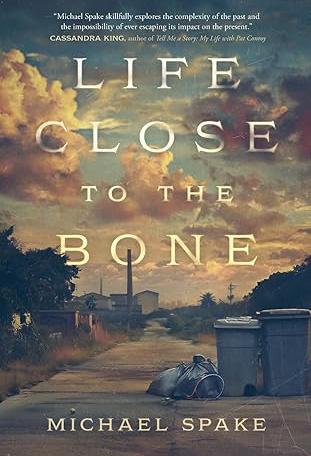
Life Close to the Bone
by Michael Spake
John Greenburn used to be somebody. Now, he's just a middle-aged guy, sitting behind his computer screen, waiting for his life to come to a screeching halt. Cognitive-Pharma, a Floridabased pharmaceutical company withdeeppocketsandasecretto hide, has caught the attention of the U.S. Department of Justice. The allegation? Medicare fraud. Nooneismoreonthehookthan John, who, as the Chief Ethics Officer at Cognitive-Pharma, has been the canary in the coal mine for the last 12 months. Not that his CEO cares much.
The CEO, a flashy, profit-driven type, certainly doesn't care that John's own mother, Francis, is in desperate need of CognitivePharma's top-selling drug to slow her memory loss. Haunted by what he knows of the fraud allegations - and the investigation's impact on the thousands of patients who depend on the medicationJohn draws closer to the memories he has of his own mother, Francis, and the ways she pushed him to be somebody.And, not just somebody, but the greatest youth tennis player upstate South
Carolina had ever known. With Francis' memory deteriorating, John's time to understand both himself and his mother, a product of the rough mill town that shaped her, is slipping away.
Life Close to the Bone moves from present day Florida and back in time to John's successful tenure on the youth tennis circuit and the textile mill in upstate South Carolina that, through Francis, shaped John's adolescence. It depicts a matriarchal family's relentless striving to overcome their "linthead" heritage and explores what it means to live for yourself and, ultimately, to forgive parents shaped by their own generational hardship.
Michael Spake is a healthcare attorney and writer. His debut novel, Life Close to the Bone, a coming-of-age story about the shift in memory that comes with moving from adolescence to adulthood, as the story’s protagonist learns about love and loss in a textile mill town located in upstate, South Carolina.
Michael and his wife Mary Lucia celebrated their 27th wedding anniversary. They have four children (22, 18, 18, and 13).
Michael is fromAnderson, South Carolina and graduated with honors from The Citadel with a BA(English) in 1994.
Michael currently lives in Lakeland, Florida.At home, when not writing, he gardens and raises chickens.


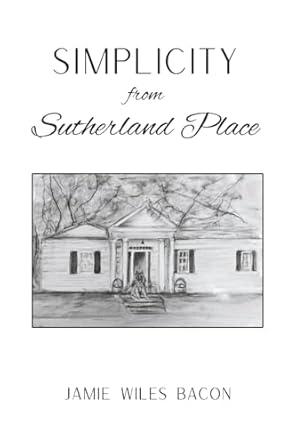
Simplicity from Sutherland Place by Jamie Lee Bacon
Welcome to the Kitchen—No Experience Required.
Cooking has always been more than just making food for me— it’s about connection, creativity, and confidence. My journey began in childhood, watching my grandmother effortlessly transform simple ingredients into something magical. She taught me that cooking isn’t just about following recipes. It’s about experimenting, savoring the process, and finding joy in the creation of a meal.
If you’re new to the kitchen, don’t worry! You don’t need years of experience or fancy equipment to make great food. This book is designed to guide you through the basics, helping you build skills, gain confidence, and, most importantly, enjoy cooking. Whether it’s your first time behind the stove or you’re looking to sharpen your technique, I will walk you through every step to make your time in the kitchen fun and stress-free.And, of course, tasty.
So, grab an apron, take a deep breath, and let’s get started. The kitchen is officially yours.

Double Stuffed Sweet Potatoes
Simplicity time: 1 hour. Serves 1 or more.
Double-stuffed sweet potatoes, also known as twice-baked sweet potatoes, are a delightful combination of creamy, sweet, and savory flavors.
Enjoy putting these simple recipes to the test and remember that a recipe is just a guideline! Don’t be afraid to get creative in the kitchen.
With love from Sutherland Place, 1839.

Advance praise for Freedom’s Eve:
“A memorable story that takes readers on an unforgettable journey through time.” –Linda Smith
“Caldwell brings history alive with insight and detail—more powerful than any classroom lesson.” –Lisa Parsons
“Richly researched and beautifully told, this story of a young slave girl is both engaging and moving.” –Tracy Cole
“A vivid retelling of history that children and adults alike will enjoy.” –Michael Jiles
“A well-written and uplifting read that captures the harsh realities of slavery with truth and compassion.” –Pat Oertel-Barefoot



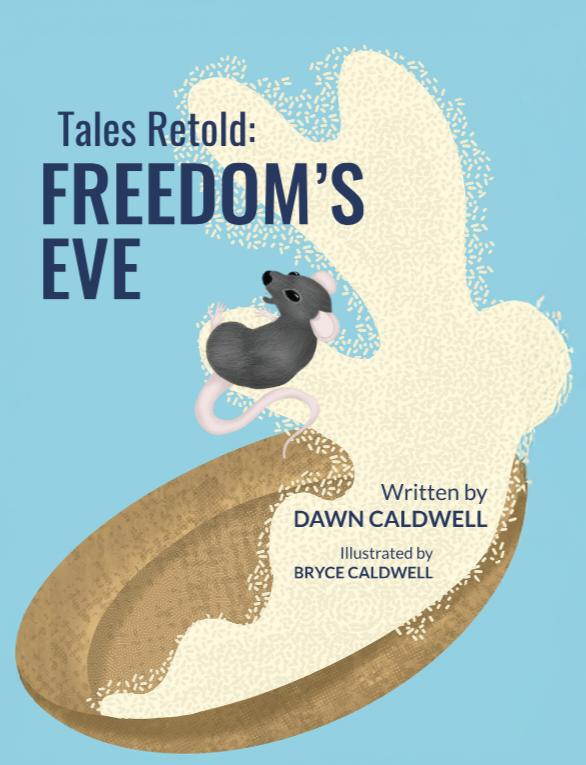
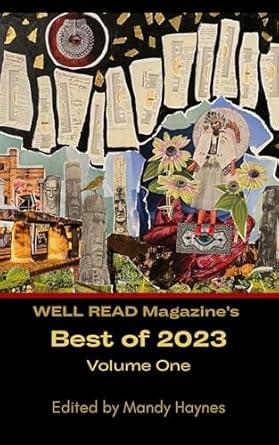
In Volume One, you’ll find thirty-eight submissions written by a fantastic mix of awardwinning authors and poets plus new ones to the scene. Three submissions in this volume were nominated for a Pushcart Prize: Miller’s Cafe by Mike Hilbig, Sleeping on Paul’s Mattress by Brenda Sutton Rose, and A Hard Dog by Will Maguire. The cover art is by artist, Lindsay Carraway, who had several pieces published in February’s issue.
Contributors: Jeffrey Dale Lofton, Phyllis Gobbell, Brenda Sutton Rose, T. K. Thorne, Claire Hamner Matturro, Penny Koepsel, Mike Hilbig, Jon Sokol, Rita Welty Bourke, Suzanne Kamata, Annie McDonnell, Will Maguire, Joy Ross Davis, Robb Grindstaff, Tom Shachtman, Micah Ward, Mike Turner, James D. Brewer, Eileen Coe, Susan Cornford, Ana Doina, J. B. Hogan, Carrie Welch, Ashley Holloway, Rebecca Klassen, Robin Prince Monroe, Ellen Notbohm, Scott Thomas Outlar, Fiorella Ruas, Jonathan Pett, DeLane Phillips, Larry F. Sommers, Macy Spevacek, and Richard Stimac
InVolumeTwo, you’ll find fortythree submissions written by a fantastic mix of award-winning authors and poets plus new ones to the scene. Three submissions in this volume were nominated for a Pushcart Prize: A Bleeding Heart by Ann Hite, A Few Hours in the Life of a Five-Year-Old Pool Player by Francine Rodriguez, and There Were Red Flags by Mike Turner. The cover art for Volume Two is by artist, DeWitt Lobrano, who had several pieces published in November’s issue. Enjoy!
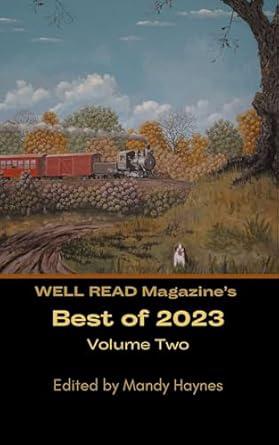
Contributors: Ann Hite, Malcolm Glass, Dawn Major, John M. Williams, Mandy Haynes, Francine Rodriguez, Mike Turner, Mickey Dubrow, William Walsh, Robb Grindstaff, Deborah Zenha Adams, Mark Braught, B. A. Brittingham, Ramey Channell, Eileen Coe, Marion Cohen, Lorraine Cregar, John Grey, J. B. Hogan, Yana Kane, Philip Kobylarz, Diane Lefer, Will Maguire, David Malone, Ashley Tunnell, Tania Nyman, Jacob Parker, LaVern Spencer McCarthy, K. G. Munro, Angela Patera, Micheal Spake, George Pallas, Marisa Keller, Ken Gosse, and Orlando DeVito
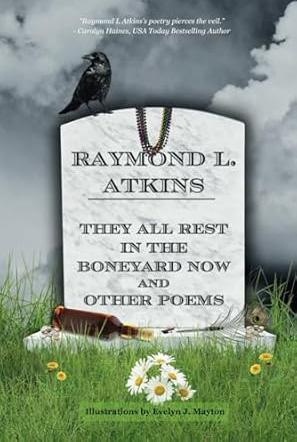
TheyAll Rest in the Boneyard Now by
Raymond L.Atkins (Author), Evelyn Mayton (Illustrator)
“Raymond Atkins writes with intuitive wisdom, as he channels those from beyond the grave. His poetry gives voice to those who once mattered, those who time wants us to forget. In They All Rest in the Boneyard Now, Atkins wrestles death from the dusty clay and breathes life into dry bones while reminding us that every soul who once had breath is worthy of being remembered. These saints, sinners, socialites, and the socially inept are all victims of time, or circumstance, as we too shall one day be. Atkins offers salvation to all who are tormented, and solace to those who seek eternal rest.”
– Renea Winchester,Award-winning author of Outbound Train
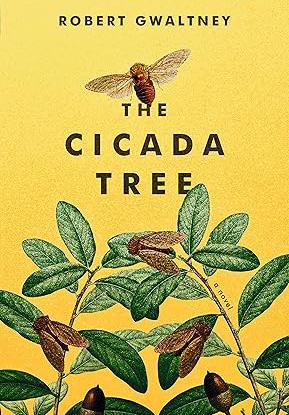
The Cicada Tree by
Robert Gwaltney
The summer of 1956, a brood of cicadas descends upon Providence, Georgia, a natural event with supernatural repercussions, unhinging the life of Analeise Newell, an eleven-year-old piano prodigy. Amidst this emergence, dark obsessions are stirred, uncanny gifts provoked, and secrets unearthed.
During a visit to Mistletoe, a plantation owned by the wealthy Mayfield family, Analeise encounters Cordelia Mayfield and her daughter Marlissa, both of whom possess an otherworldly beauty, a lineal trait regarded as that Mayfield Shine. A whisper and an act of violence perpetrated during this visit by Mrs. Mayfield all converge to kindle Analeise’s fascination with the Mayfields.
Analeise’s burgeoning obsession with the Mayfield family overshadows her own seemingly, ordinary life, culminating in dangerous games and manipulation, setting off a chain of cataclysmic events with life-altering consequences—all of it unfolding to the maddening whir of a cicada song.
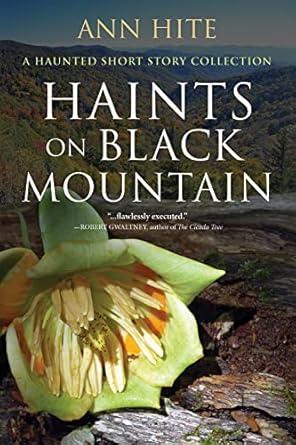
Haints on Black Mountain:AHaunted Short Story Collection by Ann Hite
Ann Hite takes her readers back to Black Mountain with this haunted short story collection.
An array of new characters on the mountain experience ghostly encounters. The collection took inspiration from her beloved readers, who provided writing prompts. Wrinkle in the Air features Black Mountain's Polly Murphy, a young Cherokee woman, who sees her future in the well's water. Readers encounter relatives of Polly Murphy as the stories move through time.The Root Cellar introduces Polly's great grandson, who tends to be a little too frugal with his money until a tornado and Polly's spirit pays the mountain a visit. In The Beginning, the Middle, and the End, readers meet Gifted Lark on an excessively frigid January day. This story moves back and forth between 1942 and 1986 telling Gifted and her grandmother Anna's story. This telling introduces spirits that intervene in the spookiest of ways.
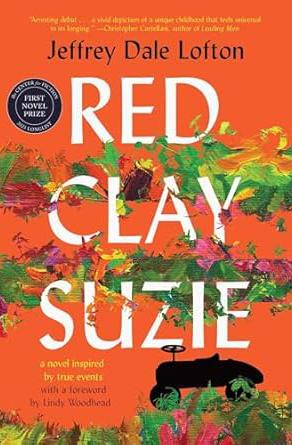
Red Clay Suzie by
Jeffrey Dale Lofton
Anovel inspired by true events. The coming-of-age story of Philbet, gay and living with a disability, battles bullying, ignorance, and disdain as he makes his way in life as an outsider in the Deep South—before finding acceptance in unlikely places.
Fueled by tomato sandwiches and green milkshakes, and obsessed with cars, Philbet struggles with life and love as a gay boy in rural Georgia. He’s happiest when helping Grandaddy dig potatoes from the vegetable garden that connects their houses. But Philbet’s world is shattered and his resilience shaken by events that crush his innocence and sense of security; expose his misshapen chest skillfully hidden behind shirts Mama makes at home; and convince him that he’s not fit to be loved by Knox, the older boy he idolizes to distraction. Over time, Philbet finds refuge in unexpected places and inner strength in unexpected ways, leading to a resolution from beyond the grave.
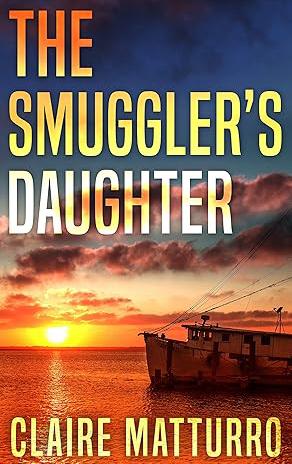
The Smuggler's Daughter by
Claire Matturro
Ray Slaverson, a world-weary Florida police detective, has his hands full with the murders of two attorneys and a third suspicious death, all within twenty-four hours. Ray doesn’t believe in coincidences, but he can’t find a single link between the dead men, and he and his partner soon smash into an investigative stonewall.
Kate Garcia, Ray’s fiancée, knows more than she should. She helped one of the dead attorneys, just hours before he took a bullet to the head, study an old newspaper in the library where she works. Kate might be the only person still alive who knows what he was digging up— except for his killer.
When Kate starts trying to discover what’s behind the murders, she turns up disturbing links between the three dead men that track back to her family’s troubled past. But she has plenty of reasons to keep her mouth shut. Her discovery unleashes a cat-and-mouse game that threatens to sink her and those she loves in a high tide of danger.
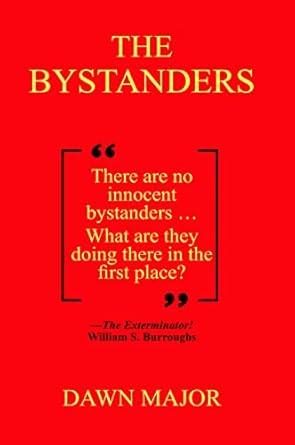
The Bystanders by Dawn Major
The quaint town of Lawrenceton, Missouri isn’t sending out the welcoming committee for its newest neighbors from Los Angeles—the Samples’ family. Shannon Lamb’s “Like a Virgin” fashion choices, along with her fortune-telling mother, Wendy Samples, and her no-good, cheating, jobless, stepfather, Dale Samples, result in Shannon finding few fans in L-Town where proud family lines run deep. Only townie, Eddy Bauman, is smitten with Shannon and her Valley Girl ways. The Bystanders is a dark coming-of-age story set in the 1980s when big hair was big, and MTV ruled. In a quiet town of annual picnics and landscapes, the Samples’ rundown trailer and odd behaviors aren’t charming the locals. Shannon and Wendy could really use some friends but must learn to rely upon themselves to claw their way out of poverty and abuse if they want to escape Dale.
The Bystanders pays homage toAmericana, its small-town eccentricities, and the rural people of the Northern Mississippi Delta region of Southeast Missouri, a unique area of the country where people still speak Paw Paw French and honor Old World traditions.

The Girl from the Red Rose Motel:ANovel by Susan Beckham Zurenda
Impoverished high school junior Hazel Smalls and privileged senior Sterling Lovell would never ordinarily meet. But when both are punished with in-school suspension, Sterling finds himself drawn to the gorgeous, studious girl seated nearby, and an unlikely relationship begins. Set in 2012 South Carolina, the novel interlaces the stories of Hazel, living with her homeless family in the rundown Red Rose Motel; Sterling, yearning to break free from his wealthy parents' expectations; and recently widowed Angela Wilmore, their stern but compassionate English teacher. Hazel hides her homelessness from Sterling until he discovers her cleaning the motel's office when he goes with his slumlord father to unfreeze the motel's pipes one morning. With her secret revealed, their relationship deepens. Angela-who has her own struggles in a budding romance with the divorced principal-offers Hazel the support her family can't provide. Navigating between privilege and poverty, vulnerability and strength, all three must confront what they need from themselves and each other as Hazel gains the courage to oppose boundaries and make a bold, life-changing decision at novel's end.
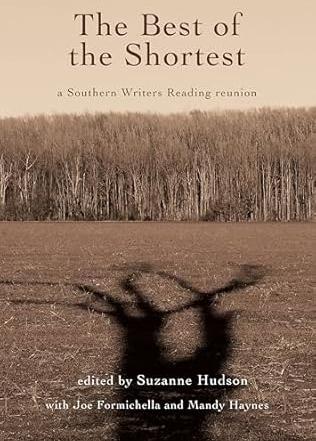
The
Best of the
Shortest:
ASouthern Writers Reading Reunion by
Suzanne Hudson (Author, Editor), Mandy Haynes (Editor), Joe Formichella (Author, Editor)
“Some of the happiest moments of my writing life have been spent in the company of writers whose work is included in these pages. They all brought their A-game to this fabulous collection, and at our house it is going on a shelf next to its honored predecessors. The only thing that saddens me is that the large-hearted William Gay is not around to absorb some of the love that shines through every word.” ―Steve Yarbrough
“The Best of the Shortest takes the reader on a fast-paced adventure from familiar back roads to the jungles of Viet Nam; from muddy southern creek banks to the other side of the world, touching on themes as beautiful as love and as harsh as racism. However dark or uplifting, you are guaranteed to enjoy the ride.” --Bob Zellner
“I had some of the best times of my life meeting, drinking and chatting with the writers in this book, times matched only by the hours I spent reading their books. This collection showcases a slice of Southern literature in all its complicated, glorious genius. Anyone who likes good writing will love it.” --Clay Risen
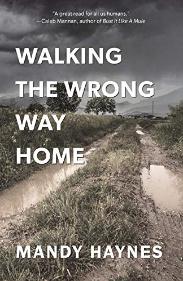
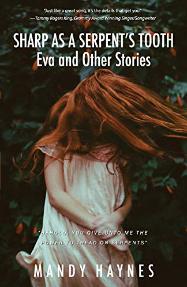
Walking The Wrong Way Home by Mandy Haynes
Spanning nearly twenty decades, the struggles and victories these characters face are timeless as they all work towards the same goal.
A place to feel safe, a place to call home.
Sharp as a Serpent's Tooth: Eva and other stories by Mandy Haynes
Each story features a female protagonist, ranging from ten to ninety-five years of age. Set in the south, you’ll follow these young women and girls as they learn that they’re stronger than they ever thought possible.
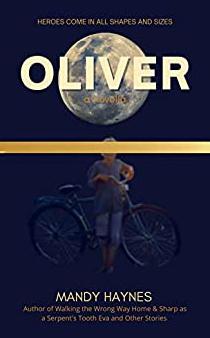
Oliver by Mandy Haynes
“Dear God…and Jesus and Mary…” Even though eleven-year old Olivia is raised Southern Baptist, she likes to cover her bases when asking for a favor. Unlike her brother Oliver, she struggles with keeping her temper in check and staying out of trouble. But Oliver is different, and in the summer of ’72 he proves to Olivia there’s magic in everything - it’s up to us to see it.
Mandy Haynes spent hours on barstools and riding in vans listening to great stories from some of the best songwriters and storytellers in Nashville, Tennessee. After her son graduated college, she traded a stressful life as a pediatric cardiac sonographer for a happy one and moved to an island off the east coast. She is a contributing writer for Amelia Islander Magazine, Amelia Weddings, and editor of Encounters with Nature, an anthology created by Amelia Island writers and artists. She is also the author of two short story collections, Walking the Wrong Way Home, Sharp as a Serpent's Tooth Eva and Other Stories, and a novella, Oliver. She is a co-editor of the Southern Writers Reading reunion anthology, The Best of the Shortest. Mandy is the editor-in-chief of WELL READ Magazine and the editor of four WELL READ anthologies.
Like the characters in some of her stories, she never misses a chance to jump in a creek to catch crawdads, stand up for the underdog, or the opportunity to make someone laugh. At the end of 2024, Mandy moved back to middle Tennessee and now spends her time writing and enjoying life as much as she can.
If you’d like to feature your work in the reading recommendation section with live links to your website and purchase link, and personalized graphics of your ad shared to WELLREAD Magazine’s social sites, click here to see examples of the different options and moreinformation.
Click here for more information on purchasing a cover.
Don’t let the low prices fool you - WELL READ was created by an author who understands how much it costs to get your book in the best shape possible before it’s ready to be queried by agents, small presses, or self-published. Showing off your book and getting it in front of readers shouldn’t break the bank.
WELL READ Magazine receives approximately 8,000 views each month on Issuu’s site alone (the world’s largest digital publishing and discovery platform available). Your book will be included with the featured authors, great interviews, submissions, essays, and other fantastic books inside each issue. There is strength in numbers. Let’s get our books seen!
Ad rates for 2025:
$50 - One FULL PAGE AD
$75 - TWO-PAGE SPREAD
$100 - TWO HIGH IMPACT - FULL COLOR PAGES - (this is NOT a standard two page spread)
$100 - TWO-PAGE SPREAD to advertise up to THREE books with one live link to your website. For publishers only.
$75 BOOKSTORES, PUBLICISTS, AUTHORS - two-page spread to promote book events
$550 FRONT COVER - includes TWO full color interior pages for book description, author bio, and/or blurbs.
$350 INTERIOR COVER or BACK COVER - includes TWO additional full color interior pages for book description, author bio, and/or blurbs.
*All covers include a one page ad in the next three consecutive issues following the month your book is featured on a cover.
Prices include creating the graphics for the magazine pages and all social sites. Everything is taken care of for you.

INSIDE VOICES
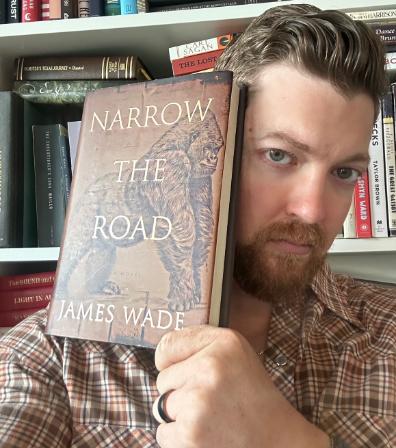
“The hardest thing in the world to do is to trust yourself. Especially for halfway intelligent folks.”
Robert Gwaltney and Jeffrey Dale Lofton introduce James Wade
James Wade is the award-winning author of Beasts of the Earth,All Things Left Wild, and River, Sing Out. He is the youngest novelist to win two Spur Awards from the Western Writers of America, and the recipient of the MPIBA’s prestigious Reading the West Award. James’s work has appeared in Southern Literary Magazine, The Bitter Oleander, Writers’ Digest, and numerous additional publications. James lives and writes in the Texas Hill Country with his wife and children. His lates novel, Narrow the Road, was releasedAugust 26, 2025 with Blackstone Publishing.
InsideVoices/Jeffrey:What first inspired the idea for Narrow the Road? Was there a moment, image, or piece of history that sparked it all?
As for the particulars, it was probably a handful of images and pieces over time. I’d always wanted to write something that incorporated the historic lumber town of Manning, Texas, because my great-grandmother was born there and, in the few memories I have of her, she was telling me stories about growing up there. The Bonus Army protests in D.C. and the federal government using force against its own veterans is a chilling moment in our history, as is the Great Depression in general.And then at some point I saw a photograph of a boxing bear in an old medicine show and wondered how I could work in something like that. But all of those
Robert Gwaltney & Jeffrey Dale Lofton introduce James Wade
Robert Gwaltney & Jeffrey Dale Lofton
introduce James Wade
things are just part of the stew.The actual stock we’re cooking with is my own need to try to understand the world. The young people in this novel are trying not just to survive their circumstances but to have a life. Despite all that’s going on around them, they want to do more than be stuck in survival mode forever. I feel like I’ve been in survival mode for the past three years. And while it’s not much fun, and sometimes can be absolutely overwhelming, I’ve also come up with some inner strength here and there that gives me some hope and some sense of myself. And that’s what William’s journey is really about, and what a lot of coming-of-age stories are about— parting with the notion that someone is going to swoop in and save you, or things are going to always magically work out, but rather, realizing that you can rely on yourself more than you thought. That you are capable and worthy in your own right. And that your friends can be just as important as family when it comes to loyalty and standing by your side.
Inside Voices/Robert: The novel is steeped in the atmosphere of 1930s East Texas. What made that setting so essential to William’s journey?
The time period is just so ripe for narrative exploration because there were so many big historical things that were happening on a national scale and yet the news that makes it into these rural areas is sometimes late, sometimes altered—and because of the way
Robert Gwaltney & Jeffrey Dale Lofton
information is given in the book,William seems to always be a step or two behind his father’s last known whereabouts, and in that way their journeys begin to mirror one another, with William quite literally walking in his father’s footsteps. It’s also a setting that William is familiar with. Even the places he hasn’t been, he's been somewhere similar. I wanted both William and the reader to feel like they weren’t necessarily traveling further away from something but instead going deeper into something.
Inside Voices/Jeffrey: Family, loss, and resilience are major themes here. What personal or cultural ideas were you exploring through William’s story?
Yeah, resilience, self-reliance—and that doesn’t mean not asking for help or having to do everything on your own—but more along the lines of trusting yourself to know who to ask, or what to ask, or what your goal should be. Basically everyone is telling William, oh, your situation looks bad, you should find your father. And William, even in the early going, is not entirely convinced that’s what he should be doing, but that’s what everyone else thinks and so he goes along with it. The hardest thing in the world to do is to trust yourself. Especially for halfway intelligent folks. We’re always worried about making the wrong decisions. We overthink things. We play out every single scenario a hundred times before we make a decision, and even then we can’t help but wonder if
Robert Gwaltney & Jeffrey Dale Lofton introduce James Wade
things would have been better had we chose different.
Inside Voices/Robert: William and Ollie make such a memorable duo—especially with Ollie’s mortician-in-training background. How did you approach writing their friendship?
William leans more toward the stoic personality, particularly in the early stages of the story, so to me that meant the narrative called for Ollie to be the opposite.To be the one who cracks jokes, the one who seems less solemn about every little thing. He pops off at the mouth, gets drunk, but is incredibly loyal to William, adhering to his own moral code of friendship and what it means. And at first his job as a mortician is just another way to highlight how “different” his personality is, and it provides some funny moments, but as we go on the reader can see that Ollie has an incredible amount of wisdom and that his world view has no doubt been shaped by his time working a funeral home and all that it entails.
Inside Voices/Jeffrey: Doctor Downtain is a truly chilling character. What went into building such a vivid and menacing antagonist?
A conman, grifter, snake oil salesman who thinks highly of himself, has few morals, and has a proclivity for underage girls. He
Robert Gwaltney & Jeffrey Dale Lofton introduce James Wade
uses divisive language to whip rural folks into a frenzy so that he can then leverage their fear and anger into a profit for himself. His followers defer to him in an almost cultlike manner. He sells fox piss and calls it a miracle cure. Doesn’t remind me of anyone, so I guess I just did a good job of making it all up.
Inside Voices/Robert: How much research did you do into the period—and what did you discover that most surprised or influenced the story?
I wrote this on the heels of Hollow Out the Dark which was set not just in the same time period, but quite the same year, and only a few counties away. There was so much research left over from the previous book that I knew I could write another and was keen to do it because I felt there were still wonderfully vivid moments and scenes and ideals that I hadn’t been able to address in Hollow Out the Dark. As for surprises, I think when I began I had an image of William’s father, Thomas, in my mind that mirrored other father figures I’ve written. Absentee, addict, just overall not a good guy. But the more I read about trauma from the first world war, and the lengths that veterans went to in order to help one another and to try getting help from the government, I began to really feel for the idea of this man who perhaps wanted to do the “right” thing but was unsure what that was. Perhaps he too was having a loss-of-faith, loss-of-innocence moment not unlike William. And so Thomas
Robert Gwaltney & Jeffrey Dale Lofton
introduce James Wade
became much more complex than originally intended and now I couldn’t imagine it any other way. He is one of my favorite characters to have spent time with.
Inside Voices/Jeffrey: Your prose has been praised for its lyrical quality. How do you balance that with the grit and danger of a fastpaced plot?
I’m not entirely sure there’s a formula to it. And I’m also not entirely sure I always do strike the right balance, whatever that may be. But I do believe a good story ought to be told with some style and some beauty and some passion. I love the way a poem has the ability to stop us in our tracks by taking something we all know or have all seen or thought or whatever, and it plays that thought or that image back to us but somehow makes it new. I love it when that sort of lyricism is in the novels I read, so naturally I try to find a place for it in the novels I write. To me that’s part of a novel’s power, but I think we see it less and less in popular literature. I think the businessmen-and-women who run the publishing industry are obsessed with phrases like “unputdownable” and “page-turner,” and they’ve forgotten (or likely never knew) the power of a quiet moment when you read a passage from Toni Morrison or Cormac McCarthy or John Steinbeck and his entire chapter about a turtle crossing a road and you just have to close the book for a minute and reflect. Reflect on the beauty of the writing,
Robert Gwaltney & Jeffrey Dale Lofton introduce James Wade
reflect on its meaning, its metaphor, reflect on yourself and how you come into play with what the author is trying to say. Those are the moments I live for as a reader.
Inside Voices/Robert: What do you hope readers take away from Narrow the Road once they turn the final page?
That not every book has to be full blown escapism. That we can challenge ourselves as readers and still get lost in a story even if it isn’t salacious or high-fantasy or overly spicy (to use a current buzz word in the booktok sphere). I love all those books, too, and I’m glad people are reading but the role of the novel for centuries has been to challenge and move and question. I’d hate to see us lose that element of our society.
Inside Voices/Jeffrey: How does Narrow the Road reflect your evolution as a writer compared to your earlier works?
It’s a little tighter. The characters, to me, feel a little more livedin. I guess it’s also a bit simpler when it comes to narrative POV. There are few chapters comprised of journal entries from William’s father, but other than that it’s a straight on, third-person narrative with the “camera” following William. There was always a third or fourth perspective in past novels. I can think of at least
Robert Gwaltney & Jeffrey Dale Lofton introduce James Wade
eight points of view in River, Sing Out, my second novel. So I’ve simplified things a bit since then.
Inside Voices/Robert: What is next for you?
I’m in a pre-transition stage. I’ll graduate in May of next year with an MFA and my hope is to teach creative writing at a university but if and where will be dictated by the job market, so there’s not a lot I can control on that end. I’m also in the early stages of a book that I should be closer to the closing stages on, so I’ve got to figure out a way to get some words down and hope they’re the right ones. But in the short term, I’m headed to Spearfish, South Dakota in the morning for the South Dakota Festival of Books, then I’ll be in Nashville next month for the Southern Festival of Books, Texas Book Festival in Austin, Louisiana in Baton Rouge, and a few more places and faces in between.
Robert Gwaltney & Jeffrey Dale Lofton introduce James Wade

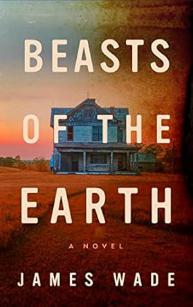
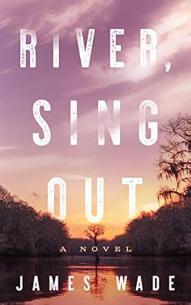
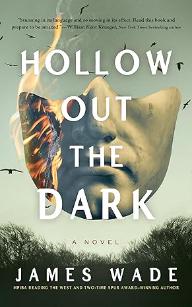


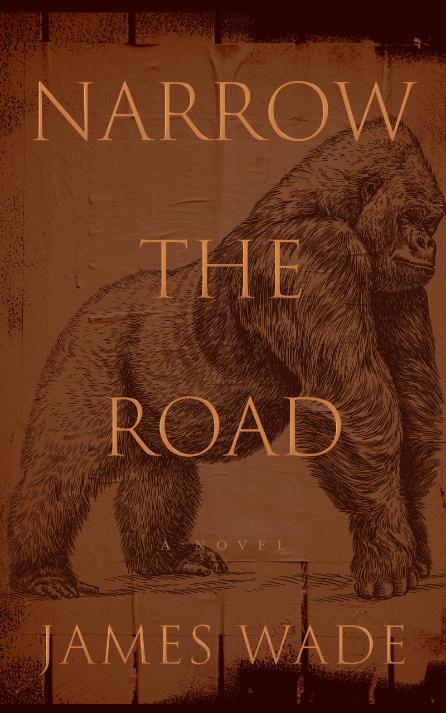
“Wade delivers a rewarding tale of a boy’s quest to find his father…reminiscent of Davis Grubb’s classic Southern gothic The Night of the Hunter, with its stark evocation of good versus evil. This odyssey of the West is tough to shake.”
Publishers Weekly STARRED REVIEW
Narrow the Road
James Wade



Click above to go to the BETWEEN THE PAGES YouTube channel, or on one of the links below to listen to the podcast. Please take a second to like and subscribe if you enjoy the channel - we appreciate you!





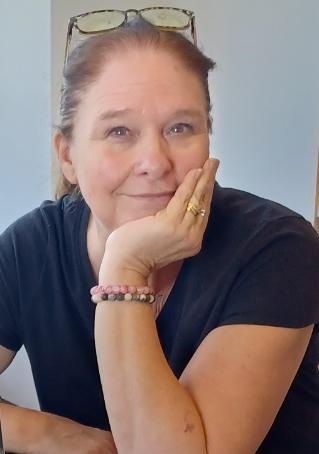
My new book, “I Am A Georgia Girl,” was released on September 2 to a flurry of interest. The first book launch–yes, I had two–was to a sold-out crowd in a late 1800s courtroom; surreal considering part of the book is about a murder trial in 1913Atlanta. Since the release of the book, I had sold out crowds that have made my head spin, two newspaper articles written in a positive light, been nominated for a national prize, and people I don't know have come to introduce themselves to me. My granny would call this tooting my own horn, and this makes me feel more than uncomfortable.AgoodAppalachian woman does not toot her own horn; instead, she remains in the background not expecting anyone to notice her accomplishments. But I'm telling my dear readers these accomplishments for a good reason.
I am assuming most of the readers of this column are writers, but if, dear reader, you are not, then just think of tooting your own horn for your own jobs well done. I don't think anyone would disagree that September was very good to me and my new nonfiction book, my first nonfiction book, a new experience for me. So, I should be flying higher than a kite swept up by a strong wind into a crystal blue fall sky here in Georgia. That was the case for me yesterday, until–there is always an until–I looked at I Am A Georgia Girl on Amazon. Ok, I confess that I look at the sales rank often when a
new book comes out, especially my first nonfiction book. That's where I saw it. What? I saw my first rating right there under the book cover. A five star? Or a four star? No sir and ma'am, there were only two stars, meaning that someone hated my book. These stars were not accompanied by a review stating why this book offended the reader so bad. Not that would have spared my feelings one bit.
Now I am going to rant here: Readers always write a review when you rate the book because the authors would love to know why you loved or hated their books. Let me remind you, out of all the great things happening for I Am A Georgia Girl, I chose to focus on these two little stars winking at me from my iPad screen. There was no account tied to the offending rating, so I jumped over on Goodreads to see the book's rating there. Four reviews all five stars and one two star.Two stars!Again. Or was it the same reader? On Goodreads you must have an account and you can't hide who you are when you rate it. So I had a name but still no idea if this person was the one who rated me on Amazon. I'd like to think he or she was.
I have to digress here to point out the madness of my thought process. Could I not appreciate what had been unfolding? Didn't I understand that my book is about a controversial trial that still splits people today? My mind did process the information, but that writer who worries over every word she writes didn't. But this is how most writers' brains are wired. We don't see the good things for the single two-star rating. We are our own worst enemy. Why
is that? Why do we assume that one or two bad ratings make our books unworthy, makes the negative opinions correct?We give our fellow writers encouragement by telling them that worrying over ratings is silly. Yet, we can't do that for ourselves.
What was the mountain magic in this situation? Did I finally understand that my work was worthy of praise, that I could believe in my abilities? I obviously have some understanding because I am writing this column that processes my actions are not a good example of my work's worth. But what did help me to have this revelation was the magic of two more reviews that appeared today, five-star ratings with written reviews. Maybe it was mountain magic, maybe my work is good. Either way I got way too caught up in this madness of whether I am liked or hated as if I was in high school all over again.
Try your best to believe in yourself, dear readers. You are so much more than a two-star rating.
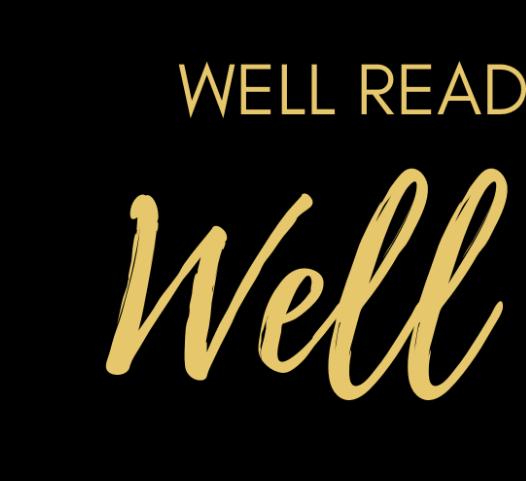

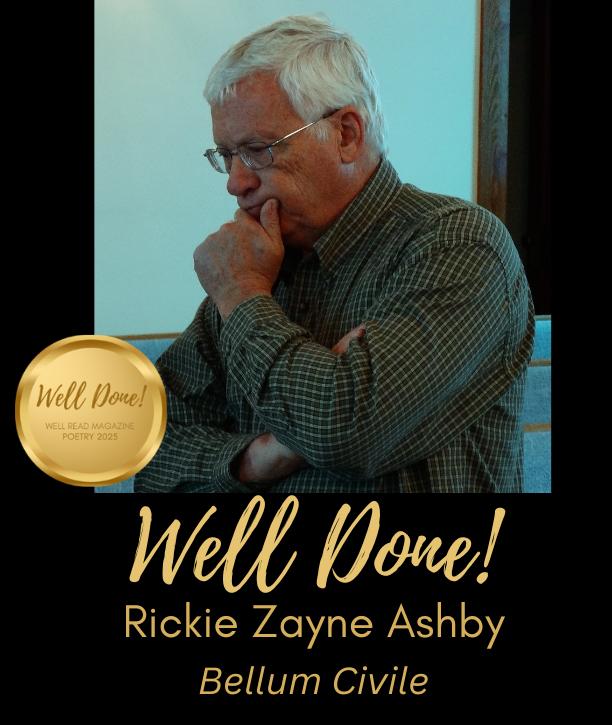
Bellum Civile
Rickie ZayneAshby
Scars created by a storm
The moon dripped blood
Horsemen in grey filled the sky
Martyrs statues arose
From the ashes the future appeared
Like the Phoenix from the past
Delusions abound
Flags of white linen
Oppression once more
Celebrating a lost cause
Chasing elusive dreams
Ignoring the truth
Emerging clouds darken the sky
Pain, poverty and violence once more
Elitist waver over the abyss
Reality rejected
Crucified on a flaming cross
Peace in the valley
--Eternally denied.
Rickie Zayne Ashby is the author of three books. He is retired And lives near bowling green, Kentucky
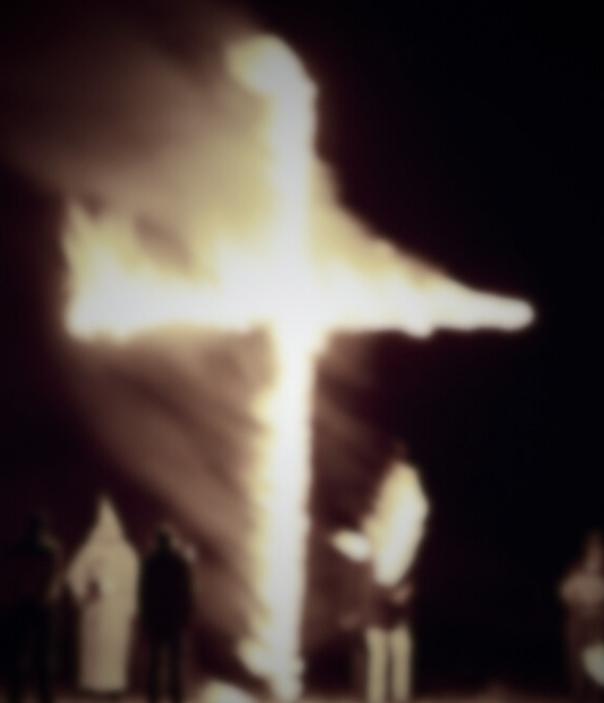
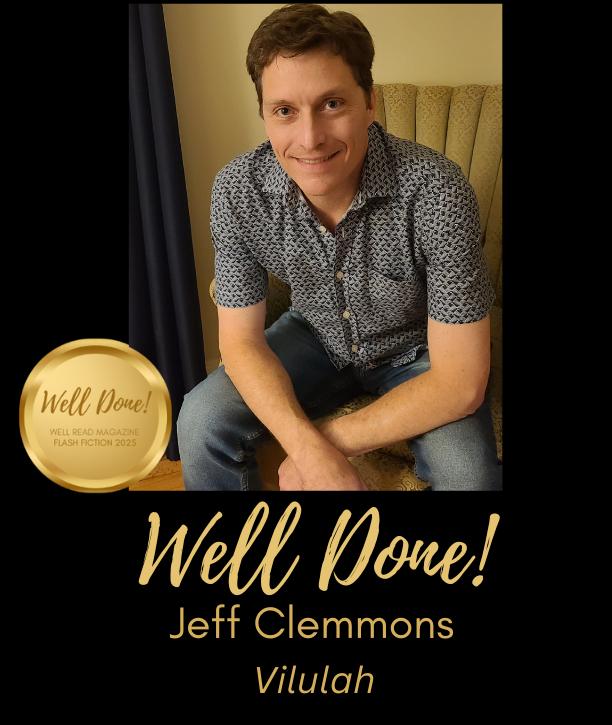
Vilulah
Jeff Clemmons
It was the way in which my grandmother held her head that I learned sorrow; it was in her home that I learned salvation. I knew neither of these things when I shot her. And when Momma found me with the gun, she whispered, “Can’t miss things you never had.”
Jeff Clemmons is a cofounder of M’ville, an Atlanta-based writing salon. In addition to writing two books – Rich’s: A Southern Institution and Atlanta’s Historic Westview Cemetery – and a screenplay, he, along with three others, was nominated for an Emmy Award for producing Georgia Public Television’s “Rich’s Remembered.” He is currently working on a biography of avant-garde novelist Frances Newman.
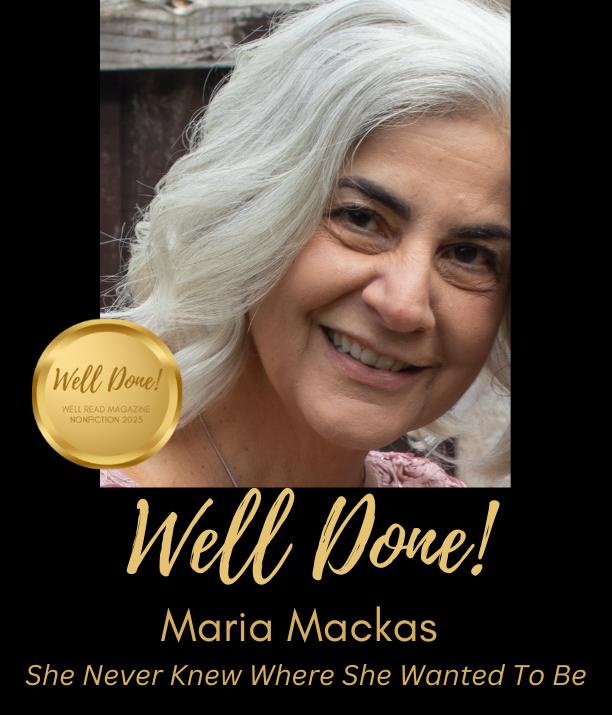
She Never Knew Where She Wanted To Be
Maria Mackas
“I want to go home,” she’d say, whether she was in Georgia, where she lived for more than seventy years, or Cyprus, where she was born. It was the one constant in my mother’s life, the one thing you could count on; she wanted to go home. But where was home? She was never sure.
Long before Alzheimer’s stole her from us, she said she wanted her ashes taken to Cyprus and spread in the Mediterranean. I promised I would make it happen.
So when I found myself stranded on a train in Italy with her ashes in a Tupperware container, it wasn’t really surprising that, inexplicably, the train stopped for an hour and a half, midway between Tarantola-Cortona and Rome, where I was heading to catch a flight to Larnaca, Cyprus. Again, she was caught in between. I missed my flight, spent the night in Rome and bought a ticket for the next flight, which was the next day. I was pissed.And exhausted.
But after thinking about it, it was so her. She never could decide where the hell to be. Every vacation to the beach, as our family of
five packed into the un-airconditioned behemoth of a Mercury for our eight-hour drive, she would announce, “I’m not going,” and march back into our split-level Tucker home (also unairconditioned – this was the 1960s). My brother and I and grandmother were so accustomed to it, we just sat in the car with the windows rolled down and amused ourselves for the 15 minutes or so it took Papa to cajole her back out. They must have argued or something – who knows. It was hard to keep track of her back-andforth nature.
And incomprehensible. Until I learned her duality was not uncommon among immigrants. I spent five years studying immigrant literature as I worked toward my doctorate in Literary Studies at Georgia State University. Literature had always been a solace; growing up in an immigrant family, books were where I turned when I was called nigger or hairy or repeatedly asked where I was from. Immersing myself in Little Women by Louisa May Alcott or Heaven to Betsy by Maud Hart Lovelace, where people were good and kind to others, and Jo and Betsy dreamed of being writers, helped me escape. Now literature provided comfort in a bigger, epiphanic way – revealing truth. My dissertation focused on four books with ties to Georgia immigrants; I interviewed seventeen immigrants to Georgia and juxtaposed their stories to those in the two novels and two memoirs. The common themes were uncanny: prejudice, hybridity, the struggle to assimilate, reluctance to denounce native citizenship, to name just a few. The immigrants, from places as varied as Nigeria and Ireland, had
experiences that closely mirrored those of immigrants in the literature.And those of my mother.
Researched and written during the first Trump administration, my dissertation captures the fears and anxieties of first- and second-generation immigrants during those years.And the anxiety brought on by those emboldened to voice what was always right below the surface: racism.
There was also that universal truth that if you looked different or had an accent, you had to prove yourself more worthy. My mother wanted me to be perfect; an “A” wasn’t good enough; “A+” was better. Fuzz on your face was unacceptable, even when you’re ten years old; regular, painful waxing made you look more American. Friends were not to be trusted; you were just a runner-up for Miss Tucker High School because your jealous friend in charge of counting the votes stuffed the ballot box.
My mother was complicated, conflicted, confounding. My father drove her crazy. Yet when I took her to New York for a long weekend I was awakened to her voice from the bathroom where she pulled the phone to longingly talk to my dad: “She’s dragging me everywhere. I miss you, Jimmy.”Whenshefinallyachievedher dream of buying a flat in Cyprus (no small feat – my mother was a secretary, my father a waiter) what did she do but sell it after only a few years because she couldn’t stand the smell of the Turkish neighbors’ cooking. You’d think that when my husband and I decided to adopt a baby from Guatemala, my mother would be accepting of a child from another culture. But she warned us not to
expect her to love a child “not of her blood.” Then she laid eyes on our little one and everything changed. They became soulmates and she once revealed, “I loved you, but nothing like I love Marra.” Hurtful?Actually, it made my heart sing. I reveled in their bond. It was one of the only times I felt my mother experienced pure joy.
When I told Marra I planned to spread my mother’s ashes in Cyprus, she said she’d meet me there. I was in Italy with my husband, celebrating the completion of my PhD. Marra was living in England with her fiancé. Together, we had spread some of my mother’s ashes in the Gulf of Mexico, on the Florida beach where I had vacationed with my family as a child, and where, years later, we would all vacation together. I had also spread some in the North Georgia creek that bordered our cabin property. More than twenty years earlier, we had spread my father’s ashes there. She loved the mountains, the ocean, Georgia – and Cyprus.
Marra and I waded into the Mediterranean one beautiful April morning and tossed my mother’s ashes into the clear, cool water. It was curious: They lingered on the surface. Then they settled on the bottom in a clearly discernible shape. I blinked and stared at what I saw.Was I creating my own kumbaya moment? I looked at Marra just as she said, “Oh my God. It’s a star.” Star – one of Marra’s first words, uttered softly as she watched The Lion King. “Marra’s Star” was a story I wrote for her right after we brought her home. I had just given Marra star earrings from Italy. We had just talked about getting matching star tattoos.
I’d like to believe my mother was finally at peace and was sending us a message. She was finally happy. She was everywhere all at once.
Maria Mackas is a writer, corporate journalist, and professor. She has a Bachelor of Arts in Journalism from the University of Georgia and a PhD in English – Literary Studies from Georgia State University. Born and raised in Atlanta, she lives in Atlanta with her husband, Randy Evans. Her children’s book, Marra’s Star, was published in 2025.
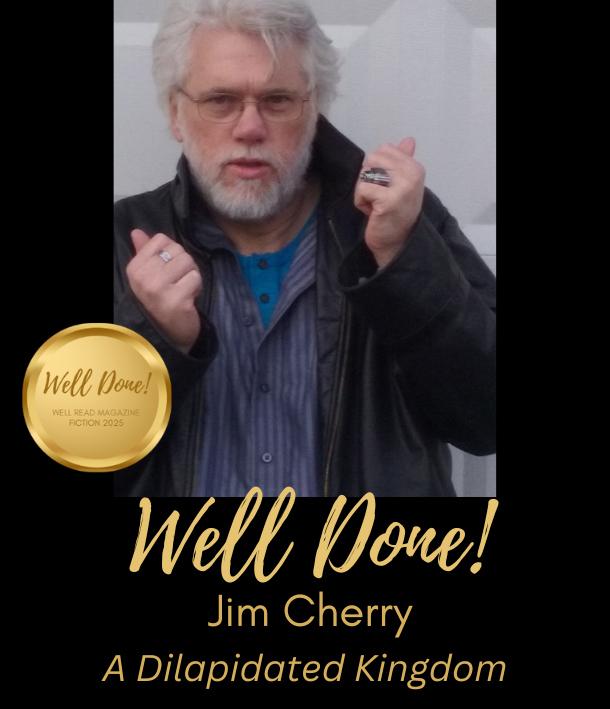
ADilapidated Kingdom
Jim Cherry
I surveyed my empery; it had become a dilapidated kingdom. The house had fallen into disrepair; it became a symbol in my mind of the decadent state I found myself in. I noticed some of the slats on the roof had loosened and were sliding off. My father had stopped coming to the cabin when the trip had become too much for him. What had once been a bare patch of dirt that was created by tons of cars sitting over it for years, tires spinning out, oil, petrol, and every kind of viscous fluid it takes to run a car had made it a barren spot. The grasses had grown in, healing the scars of our intrusions.
Inside the dusty ruins, the air smelled musty from not having the doors or windows opened in years. Everything looked pretty much as I remembered it, although the furniture was covered with sheets, it was the ruins of a life; this was my true inheritance; I was the inheritor of lost generations before me.
I spent the next few days cleaning up the place, taking the sheets off the furniture, throwing open the doors and windows, getting fresh air back into the place, and sweeping out the cabin. I got the power and the water back on. No one had informed the utility
companies of my father’s death, and his accounts were still good so I reactivated them, so I would have the basic utilities until they sent out the bills and discovered my father was dead.
They say your taste in music solidifies when you’re about thirty, an ossifying of your soul before the final transformation. The last iteration of rock and roll to come along was Grunge. A band from America, Nirvana, a state which they seemed to have attained with Lithium. I wondered how I could get to that state and learn to forget. U2 and their Joshua Tree album which pretty much summed up what I had experienced, and The Screaming Trees Butterfly, more nihilist and lacking hope than previous iterations of rock. It was the soundtrack I listened to as I cleaned the cabin. It was the last kind of music I liked.
I took long rambling walks through the field and around the lake, it was a true respite from the world. I didn’t have to be anywhere; I didn’t have to do anything or be anyone. I felt free, I felt like I was restoring myself, that I was regaining a sense of myself. I felt like I was making peace with the ghosts that me and my father had left behind. I decided to put the Mauser back in my father’s rifle cabinet, back in its place of honor, gone now was the ceremony and pomp.
After the whole house was cleaned, I decided to give myself a break and relax, sitting around drinking beer and making myself grand meals with food from the town, again on my father’s accounts.
Despite all the cleaning I had done, there was still one last room
to go through. A room I don’t think I had even been in since I was a teenager, it was the room I never dared to go into except by ‘invitation’ of my father. The room I was dreading going into, his study. It had been almost a year since he’d died. All his major papers had been at the family house, but there was still his desk here that I hadn’t yet gone through. The room was sealed like an ancient Pharoah’s tomb or a room that held some horror behind its sealed door. Would there be treasures or just an ancient stone sarcophagus of memories?
Maybe that’s why I had been so industrious the last few days with the other chores, to avoid this room and what lay inside. But the chores were done, and there was nothing else left to do, no more excuses to avoid it. I walked up the stairs as silently and stealthily as if my father was still up there and could come out of the room at any moment and ask what I was doing in that accusatory tone he had. I hadn’t liked coming up here when I was a kid, there was nothing of interest to me in that room. Any time I was ‘invited’ into my father’s study was usually for some sort of ‘disciplinary matters,’ as he called them. It was the opposite of telling someone they could go into any room of the house except one, I knew what monster had lurked behind that door. I kept my eye on the door the whole time I was walking up the stairs. Finally, I stood in front of the door, I hesitated, gathering my courage, I reached my hand out, it was shaking, I couldn't do it.
In the next few days, the fear of what lay behind the door grew exponentially in my mind, until wild chthonic horrors resided
behind that closed door. Finally, I couldn’t put it off any longer. I went up the stairs, grabbed the doorknob, turned it and pushed. It squeaked open like it was out of a haunted house. I made a final push into the room; it was as dry and desiccated as a Pharoh’s tomb. There was nothing behind the door except what was supposed to be there, my father’s law books, filing cabinets and his desk. The room smelled musty, stale, but different than the rest of the house. It was the smell of aging paper that I had always associated with my father. In a confined space like this it was quickly making me nauseous. I pulled open the wooden shutters that covered the large windows that looked out at the field, the woods, and the nearby lake. The room was filled with more light than it had been in a long time. My father had liked to open the windows to let the fresh air in and listen to the birds. I pulled the sheets off the chair and the desk and sat down. My father’s desk wasn’t all that big or impressive looking, it was stained a natural brown color and only had seven drawers. Three on either side and one long one that ran horizontally across the top of the desk, and there was the piece my father put in after I had accidentally started that corner of the desk on fire when I was ten.
I spent the afternoon going through the desk, most of the papers I found were trivial notes to himself on a case or something he had just put in his desk as a curio. When I opened the next drawer there was a Polaroid paper clipped to a couple of other papers. The picture on top was of the three of us, my mother, father, and me, in front of the cabin, it was taken when we first got it. I remembered
taking the picture, but now the blue of the sky was fading, the edges were brown and yellowing to a sepia tone, the colour of nostalgia. I smiled at seeing the picture. I remember being happy when the picture had been taken, and my parents were happy too. Maybe this was our last happy moment before everything had happened, before everything had turned into a war. I remembered being that kid. I remembered me, it was like life was becoming a remembered act, we remember being happy, instead of recognizing the moment for what it is and experiencing it.
I remember running around in the grass before being gathered up for the photo. I could see pieces of me in both of them, not just a physical resemblance but pieces of their personalities as well, both my father and mother reside within me like broken pieces of a jigsaw puzzle refitted to form me. My father’s assuredness and confidence in himself and my mother’s ambitions and restiveness. These were the forces warring within me, a war that is never over when it’s you, when it’s your life. He, me, was looking back at me from the picture and I wondered what he would think of me now. I looked into the eyes of the boy in the picture.
“Do you know me, or did I kill you off too?”
I wished I could go back to that time before we became what we were now. Maybe if I concentrated enough, I could send myself back there through some act of will. In my mind I could almost reach out and touch it, I was there. I opened my eyes, and I was still holding the picture, looking into the past, and it was gone, back in time, where it belonged, and I was back where I was at.
Under the picture was a folded piece of paper, I unfolded it and read it. I wasn’t expecting it; it was out of context of what had come before. It was my mother’s death certificate, and it was dated a few days after I won the Olympics. The bastard had lied to me! My father had said my mother had died before the Olympics, and he made it sound like it was a long time before, and then he had the nerve to blame me! He didn’t even have the courtesy to tell me when she had really died. My father was nothing more than a cog in the machine state who used their tactics and rationale to manipulate people, including his own son! Whatever he had thought of my ‘antics’ as he called them, I never tried to manipulate others for my gain. He probably had used my talent to leverage whatever he wanted from the state. I wondered if my mother had seen me win at the Olympics. Did she hold out to see me win and then let go? My father had even denied me the knowledge of what my mother thought of me. The bastard!
The next folded paper was even more out of context than the last. It was a letter from my mother, I could hear her voice in the words, a voice I hadn’t heard in a long time. As I read farther into the letter a tear rolled down my cheek.
a nurse tricked me, she asked me how I would kill myself if I could, when I answered the question, the question they asked, they locked me in a cell because I was suicidal. I was distraught, there was another woman in the cell, and she was comforting, and we ended up having sex.
I couldn’t read any more of the letter. I cried for the deception,
the betrayal my mother had suffered at the hand of my father, her husband, he was the state, he was the institution. I had been right; betrayal is the hallmark of their empire. I couldn’t figure out what had possessed him to paper clip these three things together, what did he think they had in common?The only thing I could figure out they had in common was my mother. I searched through my father’s desk looking to see if there were any more letters from my mother. There weren’t. Is this all he thought of her, these three items? I looked at the letter from my mother, it was undated. Was it one of the first letters she sent him? Or one of the last? I couldn’t tell, it was obviously aged, it had been in my father’s desk for a long time. Was he keeping it as some sort of trophy? Some victory over her? Or was it some source of regret or even guilt about what he’d done to her? Did he cry over the letter, or did he feel vindicated? Did the letter confirm her instability to him? I didn’t know my father. I couldn’t even guess which was the right answer to any of the questions.
Jim grew up in Chicago in the 60’s, although he missed all the cool things. He’s lived in Los Angeles, visited New Orleans, Mexico, France and Germany, usually when he didn’t have the money. He’s the author of several self-published novels including Becoming Angel, The Last Stage, two books of short stories, Stranger Souls, and The Lion Communique. If you want to know more about Jim, you’ll find him in between the lines of his stories.
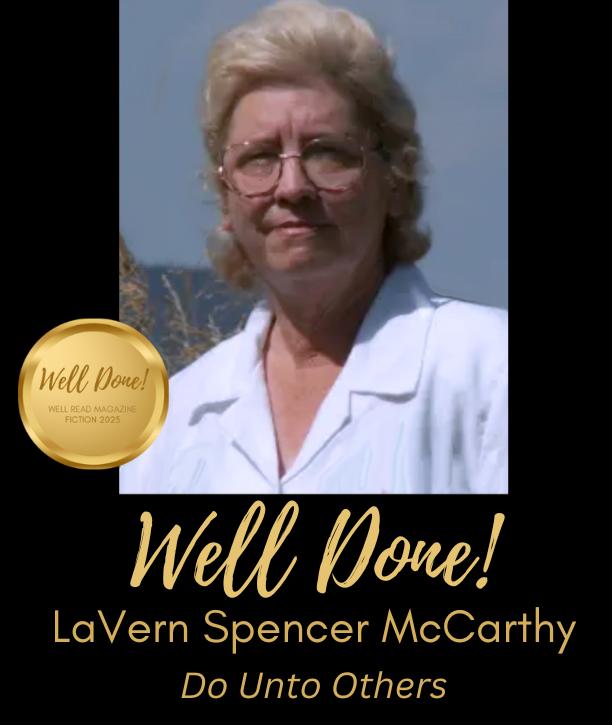
Do Unto Others
LaVern Spencer McCarthy
At first, Benton paid no attention to the ads in the tabloid. Those found at the checkout station of a grocery store held little interest for him. He looked at the front of the paper, known for its shock value and marveled that it showed a woman who supposedly had fifteen babies within the space of twelve hours.
A spaceship sat in someone’s yard on the second page. The headline stated: I play golf with aliens! On the back page were the usual requests for pen pals from prisons around the country. Benton grimaced. No, thank you, he said to himself. Anyone who wrote those bozos would be asking for trouble.
His wife, Irma, had returned from grocery shopping less than an hour before, spending most of his paycheck for her purchases.This trashy paper was another one of her ways to waste money. She had piled her cart high with snacks, especially the chocolates she gobbled by the box.
Benton and Irma had not gotten along with each other for years. Lately, they were at each others’ throats almost daily. Benton was afraid they would physically fight or at least give each other a
resounding slap. So far, he had restrained himself, but knew one day his temper might snap.
Benton was stuck at a dead-end job at a donut factory, and Irma never let him forget it. He left his dirty clothes on the bathroom floor just to irritate her. He filled his ashtray with cigarette butts and then dumped them on the floor when he needed a clean ashtray. He piled dishes on the coffee table instead of taking them to the kitchen when he was finished eating.
Irma did her part by only washing dishes when it was time to make another meal. She favored take-out meals. She loved to sit on the sofa and eat chocolates while watching soap operas.
Benton was so disgusted he found a waitress to flirt with. He hoped it would lead to a wild romance to relieve his impossibly dull life. He glanced at the tabloid again. This time he saw an ad almost at the bottom of the page. Are you having a problem with your significant other? Is someone you know driving you crazy? Have you often thought there was no way out, that you are doomed to be stuck with this person for life? We have a foolproof way for you to get rid of your nuisance. Please email us at h&penterprises. com.
Hmm, Benton thought. Maybe he would give it a try.
He glanced at Irma, sitting on the sofa, her eyes glued to the television screen. A chocolate bonbon was halfway to her open mouth. If things didn’t change soon, he might email that company and see if they could help them.
Irma and Benton had no children, for which he was thankful.
Irma had stopped mentioning children after being stuck for three weeks babysitting a squally two-year-old niece whose nose ran all the time. The niece’s mother had been in a car accident, and it took a while for her to heal and take possession of her child again. Benton could escape by going to work part of the time, but Irma bore the brunt of taking care of the child. She did her part, but she was glad when the mother came for the brat.
Benton was especially glad there were no children to worry about, three days later when he decided to act. One of Irma’s friends had seen Benton kissing that luscious waitress over the counter at her workplace. Of course, the dirty spy wasted no time getting to a phone to blab on Benton.
Irma was waiting for him at home. She threw a pan of hot water at him when he came through the door. Fortunately, it missed him, but Irma was on such a tear, she threw everything at him she could get her hands on. He ended up with a mound of butter stuck to his forehead. He was glad she did not throw the computer at him in her rage.
That night after she had gone to bed, Benton typed in the email address he had seen in the paper. He was able to set up a date and time to meet a Mr. Shipley.
Shipley was a cadaverous man, over six-feet tall. He had greasy, gray hair that likely hadn’t seen a barber in six months. He had a large hump on his back that made Benton think of a turtle. He looked at Benton as they sat across each other at the Dixie Land Café, about thirty miles from where Benton lived.
Shipley had a black case with him that he put on the table. Undoing the latches, he withdrew a contract.
“You must understand that although this program is funded by the US Government, if state or federal law finds us to be kidnappers, we could be in jail for many years. You must promise not to tell a soul anything about H&P Enterprises.”
“I won’t,” Benton promised, picking at his chef salad.
“Very well then,” replied Mr. Shipley. “Who are we talking about that you want to get rid of?”
“It’s my wife, Irma. She’s driving me crazy.”
“That’s usually the case,” Mr. Shipley agreed. “Your wife will be living in a space capsule that will orbit the earth for thirty years. How old is your wife?”
“She's thirty-one,” Benton told him
“That’s a good age,” Shipley replied. “If she survives her ordeal, she will still be young enough to enjoy life when she is set free. Meanwhile, you can go about your own life, even have her declared dead after seven years. There will be very little for her to do once she is imprisoned. However, each day she must type something on a computer that is hooked up to the Government Studies System. It is a program to enable the government to find out how humans react to very little sensory stimulation. Of course, she does not have to record her thoughts every day, but if she does not, her food supply will stop. Her meals will be fortified with vitamins and minerals.About once-a-week real food will be added to her supply. It will be on board when she is catapulted into space.
Oxygen tablets will be provided. They will be automatically fed into a processor to keep fresh air flowing for the duration of her stay.”
Shipley withdrew a pen from his shirt pocket. He showed Benton where to write his wife’s name, which was Irma Zipp. Benton signed on the dotted line and agreed to pay H&P enterprises a small sum of two hundred dollars for processing,
After being told that food would be forthcoming on the capsule by punching in a menu on an apparatus that resembled a microwave oven, Benton handed over the money in cash. Shipley wrote a receipt for services rendered. The men shook hands and left the restaurant.
Shipley had given Benton drugs to put into Irma’s drink, and a date and time had been set for her abduction. It was suggested that a door be left unlocked on the fateful night. Benton touched the vial in his pocket.At last, he would be free.
On the night Irma Was to meet her fate, she and Benton ignored each other as they sat in the living room watching television. Irma had poured herself a glass of tea, but Benton had to get his own. Irma had not spoken to him for days, but that was fine with him. He could barely contain himself at the thought that Irma would be leaving soon.
He saw his chance when Irma went to the bathroom, leaving her drink on the coffee table. He swiftly emptied the vial of powder into her tea, swished it around with his finger and returned to the sofa where he had been sitting.
Strangely, when she returned, Irma seemed to be avoiding her tea. He watched her furtively for a while but soon relaxed a little and closed his eyes. He slept, then stirred himself and took a big swallow of his tea. Irma was gone, but her glass was empty. Benton smiled. The deed was done.
Thinking how wonderful life was going to be, Benton drifted back to sleep. Sometime later, he jerked awake from a deep slumber. He was groggy and disoriented. Where was he? Things did not feel right, and he heard a low, humming sound coming from somewhere.
He was lying on a hard surface on his side.Ashoe with a foot in it was almost against his right eye. Slowly he sat up, rubbing his head. He raised his eyes and looked directly into the face of Irma.
“What the…?” he started to say when a wave of dizziness hit him.
“You’ve been drugged,” Irma said. “We drugged each other. I put drugs in your tea while you were sleeping.” The awful truth began to dawn on Benton.
“Where are we?” he croaked.
“We are in a capsule going around the earth. I was told by a message left here on paper that it would be in orbit for about thirty years, plenty of time for us to lose our sanity.”
“So, you had me put here the same way I did you, without knowing you would be trapped here too?” he accused.
“Yep, that was the way it happened.”
“I could kill you,” he threatened.
“I wouldn’t if I were you,” she advised. “You wouldn’t want to be stuck here with a dead body for thirty years.”
LaVern Spencer McCarthy has published twelve books of short stories and poetry and two journals. She has won over five hundred state awards for her poetry and thirty-four national awards. She is a life member of Poetry Society of Texas She resides in Blair Oklahoma.
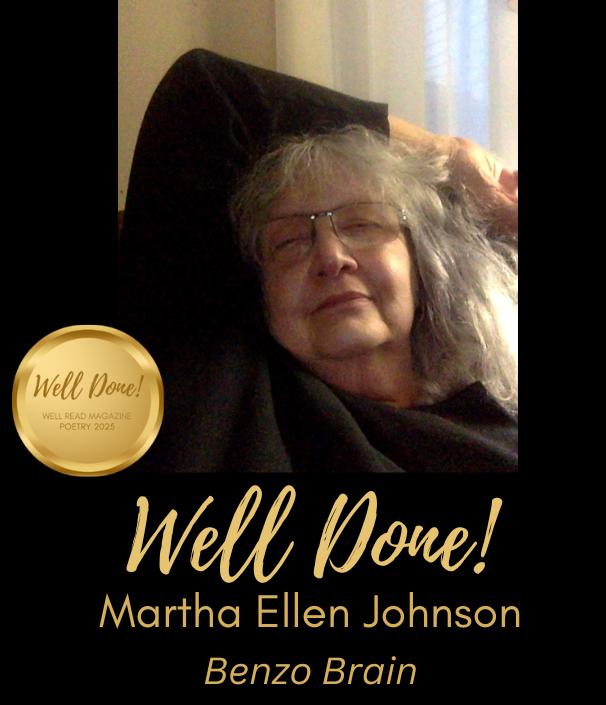
Benzo Brain #1 [Lost.]
Benzo Brain
Martha Ellen Johnson
“It’s a chemical imbalance in the brain.” Ad copy from Don Draper. I bought it.An almost mouse scampers across the floor.ANative woman with saucer eyes. She’s nice. Someone in the kitchen plays You Suffer by Napalm Death.Afirefly smiles. Who knew?Adorable. Doc says up dose for two weeks. Stars in the living room. Kurt Cobain hovers. “Hi. Miss you.”
“Mommy I can still crawl!”
Benzo Brain #2 [a.m.]
[Life review.]
henry tried to murder me// why did oma leave her baby on the street// tante hid babies from the nazis// rosie’s baby booties//uncle george died near bowling green// i hate the confederacy// i hate nazis// i love oma// i’ll write a poem about her// henry tried to murder me when rosie was a baby//i hate him// i love rosie// i hate mauve// i hate the word mauve// don’t tell me where to park// the gate scares me// why did oma leave her baby on the street// henry tried to murder me
Benzo Brain #3
[No one sees the trail of bread trucks.]
“Here’s a list of my symptoms, doc.” I’m not crazy. Look. I’m nice. See? I smile. “Your tests are normal.” I’m not crazy. “How often did you see Dr. Brown, dear?”
I’m not crazy. EMDR.
“You’re blocked.Adam holds you back.” I’m not crazy. CPTSD. “Let’s
try a little Klonopin.”
“Fuck you! I’m not crazy!” Fuckin’pieces of shit. Condescending, white-coat pushers. I hate you. help me
Benzo Brain #4 [Rage.]
“Get out of my way!” Idiot. “Where’s the wine aisle?”
Awoman stares. Fuck you, bitch. Get in here, now! Get out! Never come back! I swat insects from my arm. Boxedler bugs in Oregon. Why not? Dead whores on Astor street. Smart girls with temp jobs. Pay up and get lost. How to get under the ground near my sisters? Skye sells guns.
Benzo Brain #5
[There’s only one way out.]
It’s dark. Hansel left me alone.All men leave. None have ever loved me. I don’t care. Pretty boys took all the gingerbread. Birds ate the bread crumbs. Someone whispers, “Don’t give up. I love you.” [I dig through horse shit. I’ll find the pony.] TIME and PATIENCE arrive with shiny pebbles. Imaginary strong men swaddle me with cloaks pulled tight around. Easy, baby. Breathe. 5-5-5.
Benzo Brain #6 [Despair.]
Grey dreams. Roaming. Barren landscapes in a Dante dusk.Abreeze that does
not refresh. “Dad? Is that you?” He looks away. I march on. “Why are you here?” help me. help me. help me. help me. NO. My book of Haiku was only dirty limericks. My iron pans were bloody hammers. Henry. Smiling. Guttural growl. I can’t breathe. Daddy, I want to come home. I do not know where that would be. Parched earth. Broken stairs. Don’t fall.
Benzo Brain #7 [Terror.]
“Who is it!?”Axe murderer on my porch again. Run! Upstairs in the far closet under the clothes. Crouched on top of a pile of shoes. Maybe he won’t find me. I hold my doll close. I didn’t forget her. She loves me more. Shhhh. Is my breathing too loud? Maybe he can hear my heartbeat.
I go deaf in my right ear. An ocean roars in the left and Minnie Mouse. Phone rings. I jump through my ass. It’s Henry. Breathing.
Benzo Brain #8
[Keep trying.]
“Hi, I’m back.”At the ER. Weak. Can’t breathe. Shivers. Blood pressure stroke level.
IV.Alarm keeps going off. ER doc saunters in. “You OK?”
“Sure.” More alarms. “We’re looking for a bed in Portland.”
MEDIX. Mr Toad’s Wild Ride. Pump me full of something. If it doesn’t work, “a little electricity.” Angiogram. “Wow. Looks great!” No cholesterol. Head cardiologist: “Your heart is weak right now. We think it will get stronger. [awwwww
Sweetie pie. Giving hope.] We think it’s stress.” [Not a virus?]
It’s the benzo, doc, the benzo.
Benzo Brain #9 [Hallucinations.]
Why is the picket fence undulating? The easels I set up in the white room are also undulating. They never did that before. Flashes of lightning on a sunny day? The yellow caution paint rises up to get me. I push it down.Asphalt repairs slither like snakes. Flute music in the laundry chute. Words on the page shrink, fade and disappear or they try to sneak off the page. They think it’s funny, but it’s not. I get even. Strange fonts. Italics. Line breaks. Take that, little shits. Nausea. I barf into a zip-lock.
Benzo Brain #10 [Pain.]
It’s brain damage.Arms twisted against my chest. Fists with fingers twitching. Legs kicking all night long. Feet went numb with only electric jolts at each painful step. I’m CaptainAhab! LOL Shiver me timbers. Shuffle. Stumble. Shuffle. Shuffle. Fall. Can’t remember how to rise. Aching jaw. Must be hidden rotten teeth. “Nope.”Aghostly pallor embraces my face. I can’t straighten my left knee. Hobble to the john. Piss on the floor.
Benzo Brain #11 [Numbed out.Alone.]
I can’t subtract, multiply or divide. I can add using my fingers like I write a haiku. I stutter. I smile and pretend
everything is just fine. I show my last friend a photo from my “Closed Doors” collection.

“It’s my favorite.” She looks at me with pity. “Let’s go to lunch.”
“I can’t.” Now she knows. I’ve descended irretrievably into madness. Gifts me her old phone. Leaves. I try to care.
Benzo Brain #12
[Heaven is at hand.]
I am weightless, drifting on the softest, fluffiest cloud. I look for angels in Heaven. Fr. Lance reaches out his hand piercing the illusion of time, brushing aside the dust of death. I remember washing his feet on Maundy Thursday. I kissed his hand on Easter morning. Nothing hurts. I love you.
Lead me to the rock, Lancie.
I awake sobbing. Have to pee. My right knee gives out. My mouth is full of gravel.
Benzo Brain #13
[Radical acceptance.]
I’m still here. I’m doing pretty good. Don’t fall often. Stars to a minimum. The doormat stays put. Remembering who I had been. Del Rey beach and
hummingbirds. Was it Dale who loved me last or at all? Abroken woman. Wearing out a sofa. Day dreams. I chat with Betty, I think. She has pink earrings.And I have a new boyfriend: Sun Tzu.
“If you wait by the river long enough, the bodies of your enemies will float by.” ……. all wearing white lab coats.
2024
Martha Ellen lives alone in an old Victorian house on a hill on the Oregon coast. Retired social worker. MFA. Poems and prose published in various journals and online forums including RAIN, North Coast Squid and many others. She writes to process the events of her wild life.
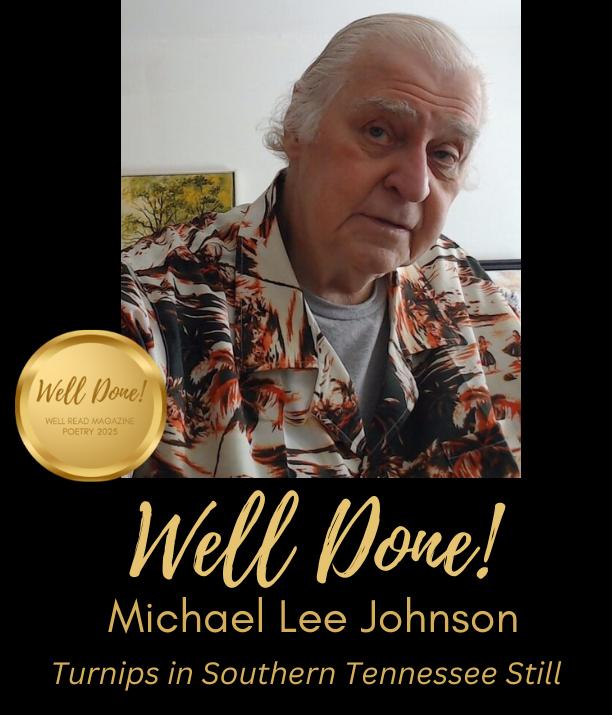
Turnips in Southern Tennessee Still
Michael Lee Johnson
In Tennessee, the shadows of the southern wooden structures stalled off the narrow highway and came to an abrupt end. Lost in the deep eyes of forest green, closing in on night. From the top of a Yellow Poplar tree scares me looking down at the hillbilly stills. Moonshine and moonlight illuminate the fire stills. Moonshine murders of the past, dead bodies hidden behind blue walls. Mobs lie in Chicago, bullet marks on the right side lie dormant through plaster. This confirms my belief that Jesus only works part-time. Let me look at this mirage picture photo album. One more time— find the turnips in the still.
Michael Lee Johnson is a poet of high acclaim, with his work published in 46 countries or republics. He is also a song lyricist with several published poetry books. His talent has been recognized with 7 Pushcart Prize nominations and 7 Best of the Net nominations. He has over 653 published poems. His 336-plus YouTube poetry videos are a testament to his skill and dedication. He is a proud member of the Illinois State Poetry Society, http://www.illinoispoets.org/, and the Academy of American Poets, https:/ /poets.org/. His poems have been translated into several foreign languages. Awards/Contests: International Award of Excellence "Citta' Del Galateo-Antonio De Ferrariis" XI Edition 2024 Milan, Italy-Poetry. Poem, Michael Lee Johnson, "If I Were Young Again."
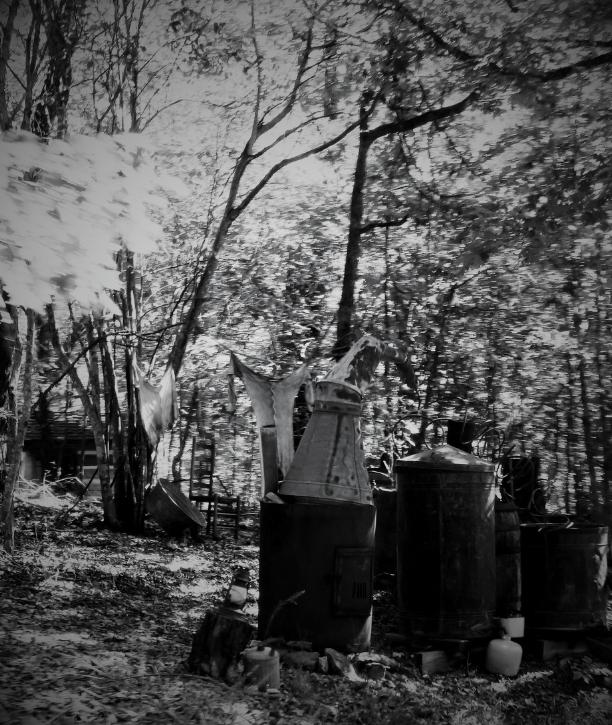
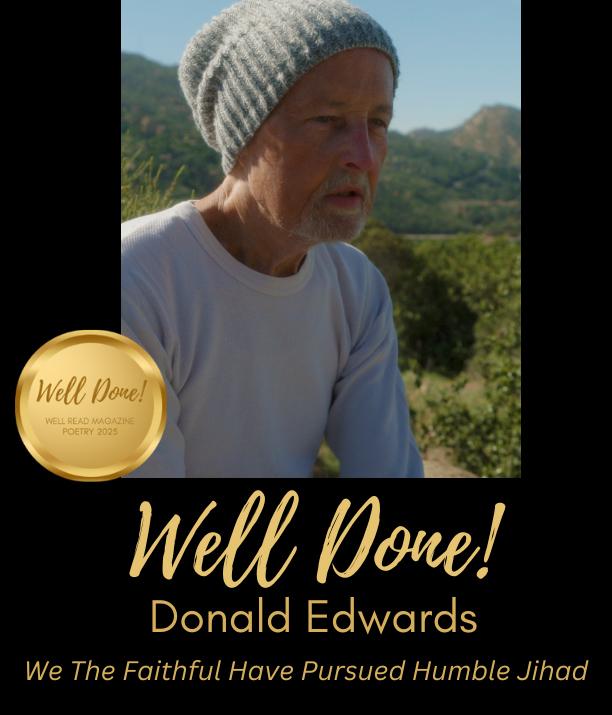
We The Faithful Have Pursued Humble Jihad
Donald Edwards
We the faithful have pursued humble jihad
These many months
And pushed our lean souls toward Mecca’s centered cube
Where cotton shrouded hajis
Twirl anti clockwise
Spiraling toward heaven
As they leap skyward
From the sacred stone, In the place where crusaders
May not come.
Here Paradise is near at hand
Just outside this dusty hut
Where explosions bright as falling suns
Disturb the heatworn streets, Where the transient world
Robed in grit and stone
Offers its self as harried tomb
For those who rise to sniff the desert breeze.
Perhaps we have had our day
Aglorious time now gone.
We entered cities East and West
To offer cleansing to our straying flock.
First we installed the blessed law
That gives direction to each doubtful step.
Next we brought down the statues,
Destroying the heathen form,
The distraction of the mind --
We did this, we the children of God’s just purpose.
The miracle of the Kalshnikov, the suicide belt, With flashing scimitars and black velvet masks
Still fuel our flawless rage.
Yayayayaya Mohammad
Ohohohohoh Prophet!
Still I truly believe
And am willing to kill suffer die
To stop those who think this desert heaven
When Paradise must be earned
Not bought or given free.
And the reward comes only
To those who slay the scarlet beast
Of earthly pleasure --
Sleekly naked girls and electric porn
Dark brown liquor and Marlboro Lights
D-Cup Strippers andApple Red Ferraris --
Not for us.
NononononoAllah
AllahAllahAllahAllah all day long.
But life has turned for those who fight
To raze the Christian curse of excess.
We plain folk, swallowing dust
Is now our fate where the whine Of drones sounds louder and Calls us to bow more often than The voice from the spiked bulbous tower.
Today white blasts leak guts from ruptured bellies
As I remember yesterday last breaths
Spraying red and wet from fresh slashed throats -God's omnipotent will Perfected by my right arm. How long now until the end -Levis beneath my robe
Hanes next to my skin
Russian girls on my iPad?
Only blood will do, Bread and blood for heaven's warriors.
AllahAllahAllahAkbar.
Don Edwards lives and writes in Los Angeles. He is a founding member of True Gospel Bookstore which records his poems as songs.
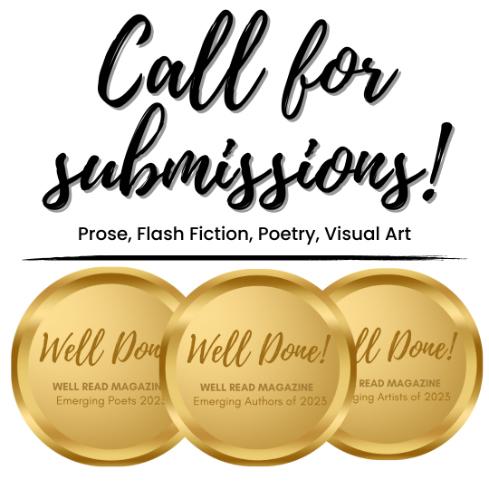
HELLO
WRITERS &ARTISTS
CALLFOR SUBMISSIONS IS OPEN!
*No prompts or themes - no boundaries*
WELL READ is looking for submissions from writers and artists who have stories to tell – through words and art. We combine new and established voices from diverse backgrounds and celebrate different perspectives. We want people who aren’t afraid to shake things up, speak their mind, and share their humanity.
Click here for SUBMISSION GUIDELINES


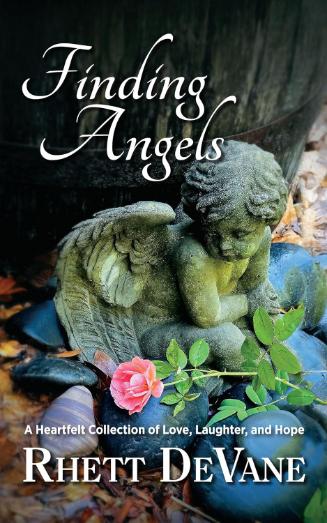
CLAIRE CONSIDERS
“Finding Angels” (August 2025) by award-winning Florida author Rhett DeVane is a collection of short stories with a smattering of poetry that will lift readers’spirits and perhaps even restore their faith in humankind. These days, that’s a tough task, but DeVane—long known and appreciated for her tender storytelling and witty, wise Southern sayings—is up to it. The stories in “Finding Angels” are impeccably written, kind, and compassionate. They brim with empathy and serve as a gentle roadmap for how we might all do better—with just a little more kindness.
While there are no spies, car chases, explosions, or grisly unsolved murders, that does not mean nothing happens in DeVane’s stories. Plenty happens. Much, in fact. These are gentle tales of everyday people facing conflicts, loneliness, and worries— the weary traveler seated beside a chatty stranger on a plane; the hard-working yet still poor woman feeding a ragged, hungry stranger at her door; the recent widow at a you-pick blueberry farm explaining why she’s gathering fewer berries this year; a dying man who meticulously bleaches his beard white to play Santa and is asked for a difficult gift; an orphaned kitten suddenly in a house with a big cat and a bigger dog—and many more.Yet,thoughfaced with dilemmas and difficulties, the people and animals come through—with the help of each other and, maybe, angels.
In the collection, DeVane includes five poems and 45 short stories, some short enough to be akin to flash fiction. Her subtitle sums up the themes: “A Heartfelt Collection of Love, Laughter,
and Hope.” In her introduction, she acknowledges: “Like so many saddened by the turmoil and division in our world, I wondered how to move forward with my writing.” In reviewing numerous pieces she had written, DeVane “spotted silken threads that knit them together. Joy. Sadness. Forgiveness. Kindness. Trust.” In light of that, and combined with a “series of mystical events,” she hopes that by “honoring these common human experiences, we grasp the ways we are the same instead of focusing on differences.”
Long a celebrated master of spinning Southern wisdom and colloquialisms into her fiction, DeVane shows that skill many times over in Finding Angels. For example, in “Bird Chimes,” a very pregnant woman befriends her elderly neighbor, who says of her wild hair: “I’d twist it into a bun, but that makes me look older than a ghost granny’s panties.” In “Lake Shares,” a particularly lovely tale of a woman in her final days, the woman resists her son’s determination to keep her from walking to the grocery store and a nearby lake. She observes: “When a woman’s universe is reduced to five city blocks, only the Grim Reaper himself can stop her with a well-planted foot.” And in “Paint-by-Numbers Club,” where a total misunderstanding by a lonely foreign man leads to a surprising connection, DeVane writes: “Hemmed between the two women, Lar’s face holds the bewildered expression of a homecoming queen at a hog-calling contest: out of place and offkilter.”
In an especially poignant story titled “Similar Snakes,” DeVane again demonstrates her mastery of wise yet humorous sayings and,
in many ways, sums up the unifying theme of her collection.After spoiling a naughty prank, a father tells his mischievous daughter: “Don’t let the devil sitting on your shoulder tell you what’s what. Listen to the angel on the other shoulder.Always.”
All in all, Finding Angels is a warmly homespun book— entertaining, uplifting, and genuine and sure to be a comforting read for turbulent times. DeVane’s characters remind us that hope often arrives in the smallest, most human moments.
Fans of DeVane’s prior seven adult novels set in Chattahoochee, Florida, will find a few old friends like Piddie and Hattie among these short stories. And for readers who have not yet discovered this author, Finding Angels may be the perfect invitation into the community of dedicated Rhett DeVane fans.
The author, originally from Chattahoochee, now lives nearby in Tallahassee, Florida. In addition to her adult Southern fiction novels, DeVane writes Middle Grade and Young Adult fantasy series. Her works have earned numerous awards from the Tallahassee Writers Association, Florida Authors and Publishers Association, and the Florida WritersAssociation.
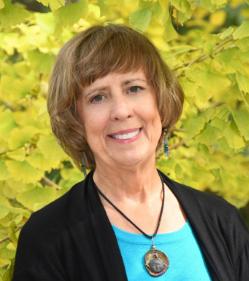
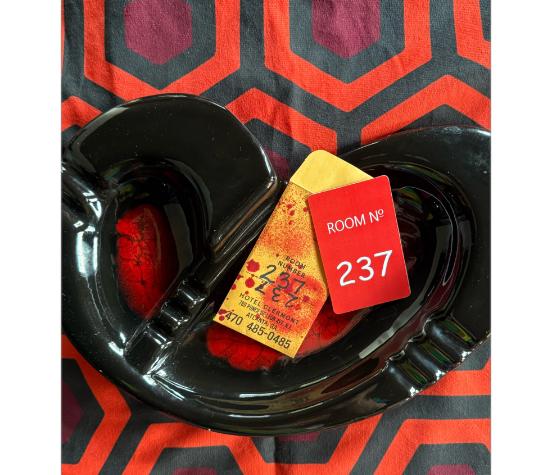
TripLit
with D. Major
“Here’s Johnny!”
“Here’s Johnny!”
Dawn Major
Sometimes human places create inhuman monsters. Stephen King—The Shining Halloween is just around the corner which means for me it’s time to watch The Shining. It’s one of my very favorite movies of all time. That movie simply doesn’t age. It’s as terrifying to watch the first time as it is the twentieth time. Can you get any better? I can already hear responses from diehard Stephen King fans: “Yes, the book is better.” Okay, fine. Admittedly, the last hundred or so pages of The Shining I read standing up. But I was left wanting more. More as in I didn’t want it to end…not more in that I found the novel or the movie lacking. Thankfully, King wrote Doctor Sleep. Did that satisfy my need for more? Mmm…that’s a tough one. That book had a different impact on me because King was in a different headspace. Many view Doctor Sleep as a quintessential AA book. Both books gave me another dosage of the happy Torrance family, though. So, what’s a junkie like me to do?
Sorry for burying the hook, but hey, delayed gratification. Da, da, da, dum…Book the “Here’s Johnny” package at the Hotel Clermont inAtlanta, Georgia. For my 40th birthday (hmmm…), my husband booked a horror-
themed hotel package at Hotel Clermont, a well-known spot in Atlanta. But I have my own history with the hotel. I had the pleasure of an overnight stay prior to the renovations and survived to tell the tale. I’m not certain the hotel’s receptionist was among the living. For $30 a night you got a smoke-filled room oozing with mold. AND the unearthly sounds coming from your next door neighbors were complementary. How did I end up staying in such a classy place? A story for another day. Actually, the hotel was quite fashionable in its heyday. The infamous gangster,Al Capone, stayed at the hotel. Every hotel worth its salt needs a sordid past. If the walls could speak, they’d be screaming. I’m not suggesting that Hotel Clermont is haunted though the waitstaff at the hotel’s restaurant, Tiny Lou’s, said they felt “vibrations” in the restrooms. But I’m the nutjob who deliberately stays at haunted hotels— Menger in San Antonio, Hotel Monteleone in New Orleans, and The Marshall House in Savannah—so it’s more than likely the staff was feeding into phantasmagoric fantasies. Still, things tend to linger in these old hotels which makes Hotel Clermont ideal for the “Here’s Johnny” package.
(SPOILERALERT) WHAT COMES WITH YOUR HORRORINSPIRED “HERE’S JOHNNY” PACKAGE:
Room Key #237: The room number became a controversial subject between King and Stanley Kubrick. In the book, it’s room #217. In the movie it’s room #237. Hotel Clermont took Kubrick’s
side because we stayed in room #237. Naturally, being the King nerd that am I pointed this out to the staff. I was told that they didn’t have a room #217. I find that hard to believe, but I didn’t go hunting for the room, because the hallways were giving off massive Danny Torrance/Big Wheel vibes.
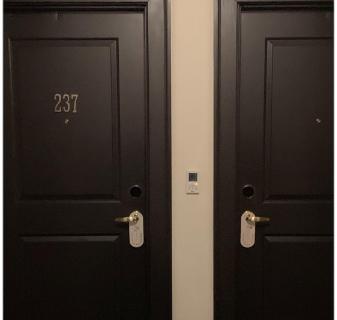

Sidebar: In the movie Doctor Sleep, King finally got room #217. Danny Torrance works in hospice and there’s a scene where he’s mopping the hallways and sees a cat going into one of the patient’s rooms. The cat has this uncanny ability and knows when someone’s time is up. So, kitty leads Danny to room #217 where he is officially named Doctor Sleep. Told you. Nerd. There’s also a shout out to Elm Street in Doctor Sleep, but I’m not giving that one away. Look for it.
Identical twin sisters. Hiring child actors would have created a more theatrical effect, but the package is only $237 which is surprisingly good deal for what you get especially if you make it out alive. These mannequins are not the Grady twins but are unnerving in their own right.
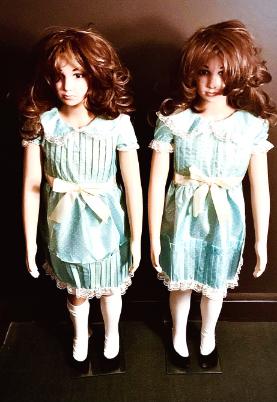
Eerie atmosphere. Upon entering room #237, the soundtrack (on vinyl) for The Shining was playing along with the DVD of the movie.
A bottle of Jack Daniels was next to a Royal typewriter with “All work and no play makes Jack a dull boy” typed
endlessly on paper. For the nerds, Jack Torrance’s character in the movie used an Adler Universal 39 Model, the same model used Kubrick used to type his scripts.
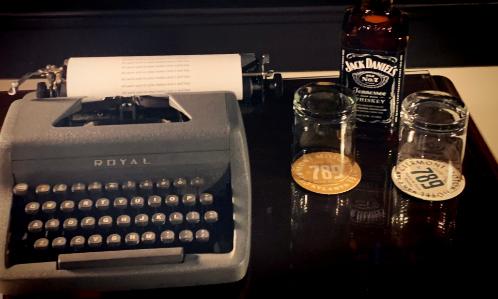
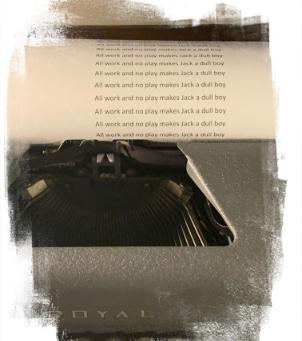
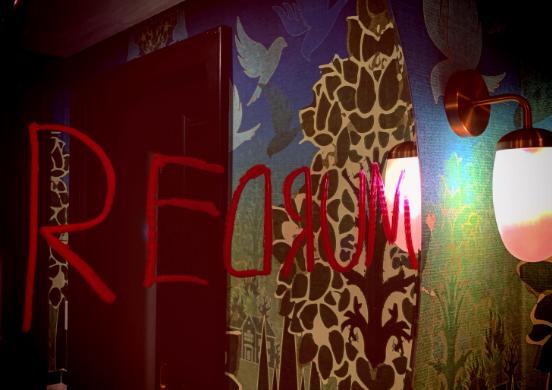
Two movie-inspired cocktails at the hotel bar. Check. Redrum spelled out in red lipstick on the bathroom mirror. Nice touch.
Jack Nicholson’s “Here’s Johnny” face plastered on the interior door.
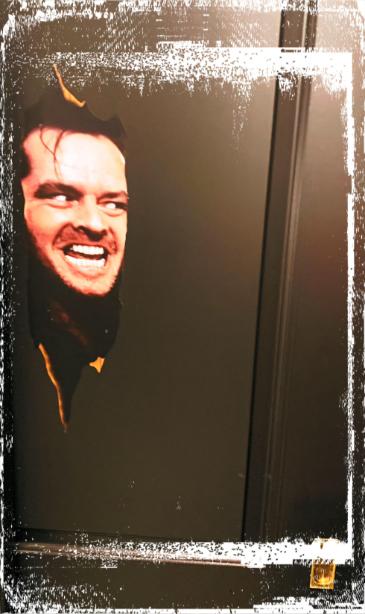
WHAT DOESN’T COME WITH THE HERE’S JOHNNY PACKAGE:
Alas! The staff won’t chop down your bathroom door or even your room door—another point I brought up to the concierge the following morning. I mean I wanted immersive. Can you fathom the look I got from that fella? I’m willing to bet he told the rest of the staff that the crazy lady staying in room #237 was hoping they’d chop the door down. Not a cost effective experience but it sure would have been cool. By the way, Kubrick went through sixty doors filming the axe scene.
What made up for the lack of axe action was the lovely MP3 player that went off at 2 AM playing Red Rum on a continuous loop. The staff hid that sucker well (it was stuck in between the mattress and the boxspring). It took at least ten minutes to hunt down the source. That was about the breaking point for my husband who was DEAD asleep.
The Boiler Room. You don’t need the boiler room when you have what’s buried in the nether regions (pun intended) of Hotel Clermont. The infamous strip club, Clermont Lounge, resides beneath the hotel. It’s what you would expect from a crypt—dark, dank, with deadish things. Clermont Lounge is so famous that Anthony Bourdain (God bless) visited when he was filming The Layover. He hung out with Blondie whose claim to fame is crushing beer cans with her boobs. I really don’t like to use this expression, and I don’t even agree with it, but it’s common for locals to refer to the lounge as the place “where strippers go to die.”
On the subject of death or near death experiences, when developers purchased the decomposing Hotel Clermont everyone assumed the hotel would be demolished. It closed down for health violations in 2009 (wasn’t kidding about the oozing room) and remained rotting on Ponce de LeonAvenue waiting for someone to read it is last rites and plow it over. We would have to mourn the loss of another iconicAtlanta building. We’ve already lost some of the best dive bars on Ponce. Atlanta is a slash and burn city—the residual effect from Sherman’s March to the Sea. Historical preservation? What? We figured that if the hotel were resuscitated then surely the strip club would be put to death. But no!! Not his time you gentrification slut! This story has a happy ending. The hotel and the lounge are alive and kicking and waiting for you to visit.
If you’re interested in getting your shine on, then you had better act quickly. The package runs during the month of October and there’s only one room #237, so book it now. Nope, I didn’t get paid by Hotel Clemont for this piece, but I should have.
Link: Here's Johnny Package — Hotel Clermont

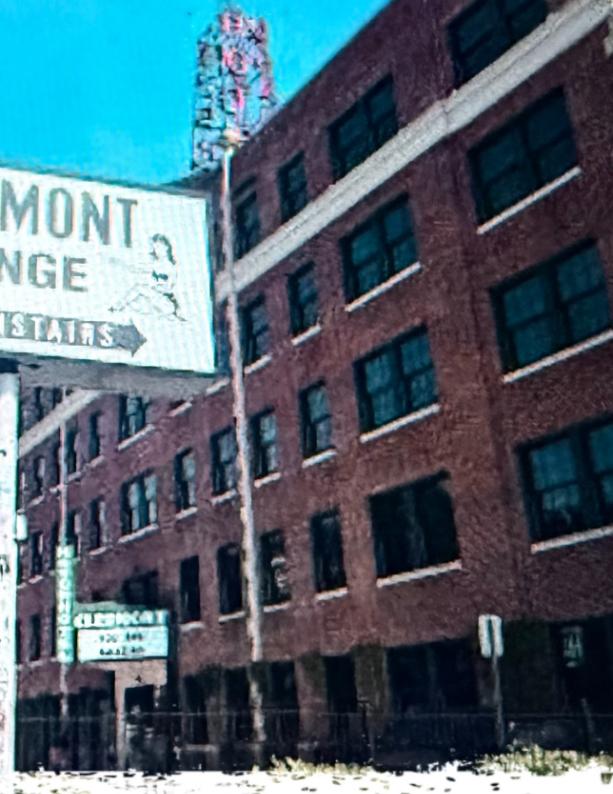
Finding Inspiration in Unexpected Places
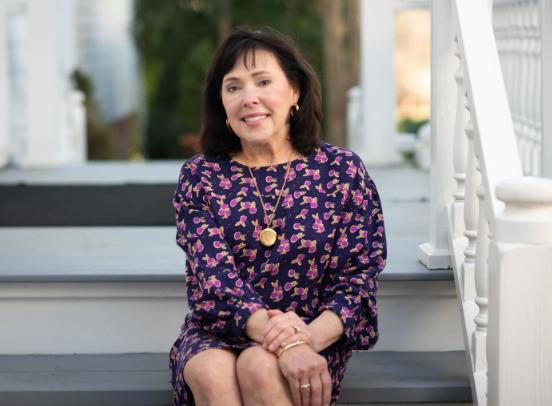
THE WRITER’S EYE
with Susan Beckham Zurenda and guest author, Julia Franks
I didn’t meet author Julia Franks until we were author participants at Booksmarks’ Movable Feast in Winston Salem in early 2024, but I read her compelling books long before. She is the author of two critically acclaimed novels, The Say So and Over the Plain Houses, a debut that was included in many “best of” lists, including NPR’s Notable Books of 2016. Her work has received seven literary prizes (The Townsend Prize, The Thomas Wolfe Award, The Southern Book Prize, GeorgiaAuthor of the Year, The IPPY Gold, An Earbuds Award from Library Journal’s Audiofiles Magazine,and a Foreword INDIES Book of the Year Honorable Mention). She has also published in The New York Times,Threepenny Review,Ms. Magazine,Salon,Lit Hub,and The Bitter Southerner. Here, Julia writes about her novel in the works, tentatively titled The Acid War and how a postcard captured her attention and provided an eventual “aha” connection for her story:
The postcard shows an early 20th century immigrant sitting on an industrial wooden crate. The man doesn’t pose or straighten or even try to orient his body toward the camera. He only turns his face to us with an incurious expression. He’s wearing the dungarees and shade hat of a laborer, but also the clean white blouse, waistcoat, and watch chain of a supervisor or engineer. One hand is bandaged and missing two fingers, and he wears only one shoe. The caption on the card reads, “CHRIST DERCIGNICE
FELL
110 Feet FROMTHE PARKSVILLE DAM, May 15, 1913.”
In the early 1900s many foreign laborers lived in encampments on the sites of huge construction projects. In the South, such camps tended to be called “dago camps”, though they seemed to have included Greeks, Bulgarians,Armenians, Hungarians, Italians, and many others besides. Whatever these men’s origins, their premature graves were likely to be marked Dago 1, Dago 2, etc. Such was the case with those who died building the first dam across the Ocoee River, the Parksville Dam.
But this particular man had the dignity of a photograph.And yet. Whoever scrawled his name across the front of the image didn’t get it correct. The surname Dercignice does not exist anywhere I can find it, and the first name, well, suffice it to say it’s not every day you meet people named “Christ.”
Which was maybe short for Christian? Not clear. An hour of googling leads to crumbs: in rare cases the nickname might be a shortened form of “Christos”, “Christophe,” or “Christiaan” in Greece, Haiti, Philippines, Holland, or Belgium. The internet also tells me two versions of the Christ Dercignice “legend,” one, that he died immediately, and the other that he walked away without a scratch. Both versions seem belied by the photograph.
I’d gotten to this dead end while researching for a novel about Copperhill, Tennessee. By that point in my investigations, I was already overwhelmed with eye-blinkingly strange material about the Copper Basin: the fact that early 20th century Tennessee copper companies were manufacturing the majority of the world’s
sulfuric acid, that some of our nation’s most educated and inventive scientists were living in this corner of Appalachia, that castle-like refineries produced vast quantities of acid and stored it in vats the size of grain silos, that the landscape was barren and surreal, a valley where creeks ran purple, where the air dissolved fabric and no blade of grass grew, where rich executives employed barefoot locals to do everything from hauling ore to fetching their errant tennis balls, a place where local farmers suffered the consequences of industry’s acid rain, and resentments simmered as long and hot as the copper in the Bessemer smelters, a place where two back-to-back fires burned down the entire town of Copperhill in just 48 hours, and an arson investigation was launched.
All of which seemed like plenty of material—too much material— for my next book. I meant for my story to be about the tensions between capitalism and the environment, between Gilded age executives and rural farmers, between sulfuric acid and arson. The challenge would be making the surreal feel real, and it definitely wouldn’t help to include a mysterious guy who’d fallen from a dam and may or may not have died and may or may not have been named Christ.
I mean, seriously.
But over the following weeks, Christ kept insinuating himself into my thinking.
Robert Olen Butler has written about the genesis of a novel being two things, two ostensibly separate stories working at cross purposes to one another to create a kind of friction. And when I
stop to consider, this kind of cross-grain action has been my experience as well.
I think you know where this account is going. It took longer than I want to admit, but I came around to the obvious conclusion:What if Christ the immigrant became a kind of lever to open up the rest of this unique and forgotten place? What if, instead of trying to normalize a very strange place, I instead leaned straight into all its weirdness?
You start where you start. You start with a sentence. To begin with, Christ fell one hundred and ten feet from the top of Parksville Dam down the spillway and into the Ocoee River, where the combination of cold water and sulfuric acid slapped him clean back to life.



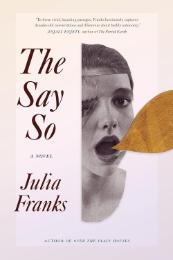

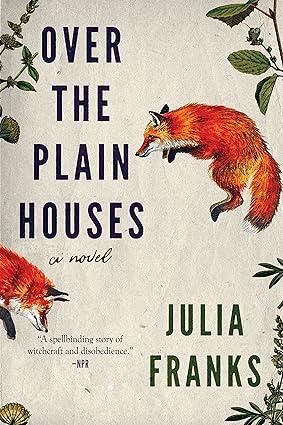
"A spellbinding story of witchcraft and disobedience." - NPR
Over the Plain Houses
Julia Franks
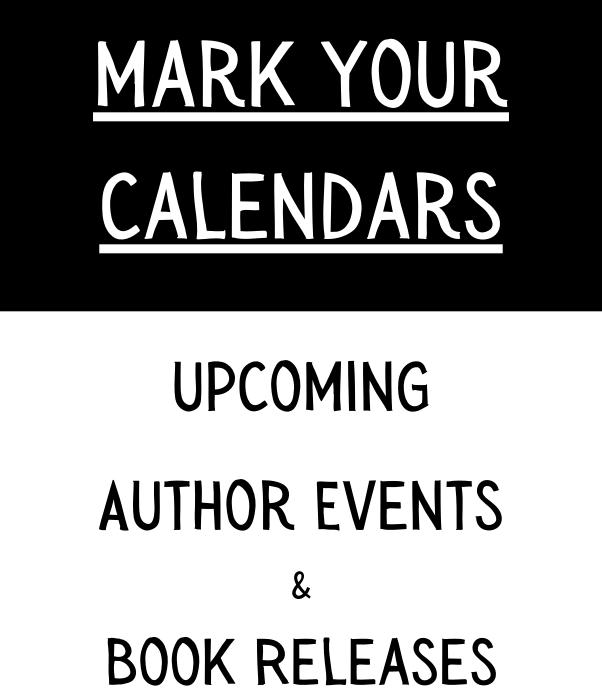
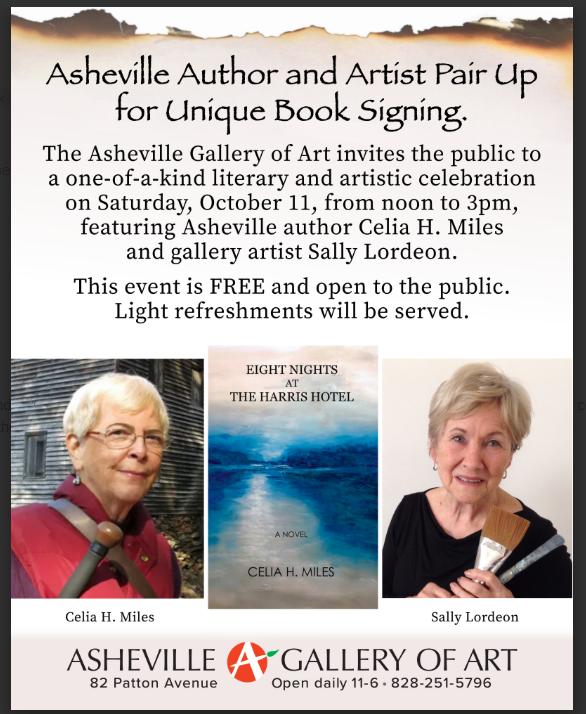


2-year/60-hour Program
Study One-on-One withAward-Winning Writers
Online Courses
Learn from Home
3 Writing Residencies
3 Entry Points to Start in the Program
Beautiful Rural Campus Nestled in the Etowah Valley (550+ acres)
Nestled in the shadow of Pine Log Mountain for the perfect writing experience, the Etowah Valley is a bridge betweenAtlanta and theAppalachian South, where nature meets culture. At Reinhardt University’s Etowah Valley Master of Fine Arts (MFA) Low-Residency Program writers create a literature that is story-driven and grounded in the places where we live, whether rural or urban.
Each summer, students visit our beautiful campus in North Georgia for a 10-day intensive residency to be immersed in writing daily writing workshops, craft classes, experiential excursions into natural and urban environments, and nightly readings on campus from our visiting writers.
Our students travel from all over the United States to attend the summer residency to learn from some of the finest writers. In doing so, they embody a unique mixture of cultural traditions and lifestyles.Amid the thrivingAtlanta film scene and Southern environmentalism, we believe in the art of storytelling that develops voice and meaning to the individual artist.
For more information, visit the MFA website or contact the MFA director, William Walsh, at bjw@reinhardt.edu
Core Faculty:
Anjali Enjeti (creative non-fiction/fiction)
Southbound: Essays on Identity, Inheritance, and Social Change The Parted Earth
Jessica Handler (creative non-fiction/fiction) The Magnetic Girl Invisible Sisters
Soniah Kamal (fiction)
An Isolated Incident Unmarriageable
Donna Coffey Little (poetry/fiction) Fire Street
Wofford’s Blood
Michael Lucker (screenwriting)
Crash! Boom! Bang! How to Write Action Movies Rule One
Past Visiting Writers:
Laura Newbern (poetry)
Love and the Eye A Night in the Country
Gray Stewart (fiction) Haylow
Megan Volpert (poetry/creative non-fiction)
Why Alanis Morissette Matters Boss Broad
William Walsh (poetry/fiction)
Haircuts for the Dead Fly Fishing in Times Square
John Williams (fiction/creative non-fiction) End Times
Monroeville and the Stage Production of To Kill a Mockingbird
Adrian Blevins, Daniel Black, David Bottoms, Richard Blanco, Earl Braggs, Jericho Brown, Annemarie Ni Churreáin, Denise Duhamel, Stephen Dunn, Pam Durban, Alice Friman, Anthony Grooms, Beth Gylys, Ann Hite, Kristie Robin Johnson, Andrea Jurjević, John Lane, Ellen Malphrus, Reginald McKnight, Christopher Noel, Robert Olmstead, Janisse Ray, Megan Sexton, George Singleton, Sharon Strange, Chika Unigwe, Monica Lee Weatherly

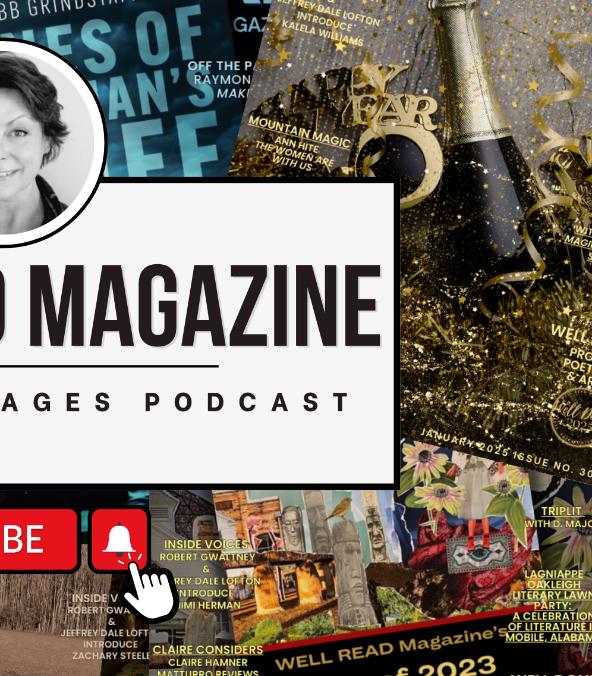
I’m an indie author of two short story collections – Walking the Wrong Way Home and Sharp as a Serpent’s Tooth – Eva and Other Stories, and a novella, Oliver. I’m the editor and designer of WELL READ Magazine’s Best of 2023, and Best of 2024 anthologies, the Encounters With Nature anthology, and coeditor of The Best of the Shortest: A Southern Writers Reading Reunion. I’m also a freelance writer for Amelia Islander Magazine, and the Editor in Chief and Publisher of WELL READ MAGAZINE.
I’ve learned so much about formatting, interior design, cover design, and self-publishing since my first short story collection came out and oddly enough, I’ve had fun doing it! But it can be frustrating and overwhelming trying to figure it all out on your own. I’d like to use what I’ve learned to help you.
Whether you’re thinking of self-publishing, querying agents or small presses, I can get your manuscript ready to send out without costing a fortune or waiting for months for a finished product.
Cover Design Pricing starts at $250 - Price include covers for both your print and ebook with unlimited tweaks until it’s perfect. See the next page for a few examples of covers I’ve created.
Interior formatting - $2 per page, $3 per page if photos and/or images are included in your manuscript.
Professional Critique - $2 per page
For more information, click here, or contact me at mandy@mandyhaynes. com for a free consultation.
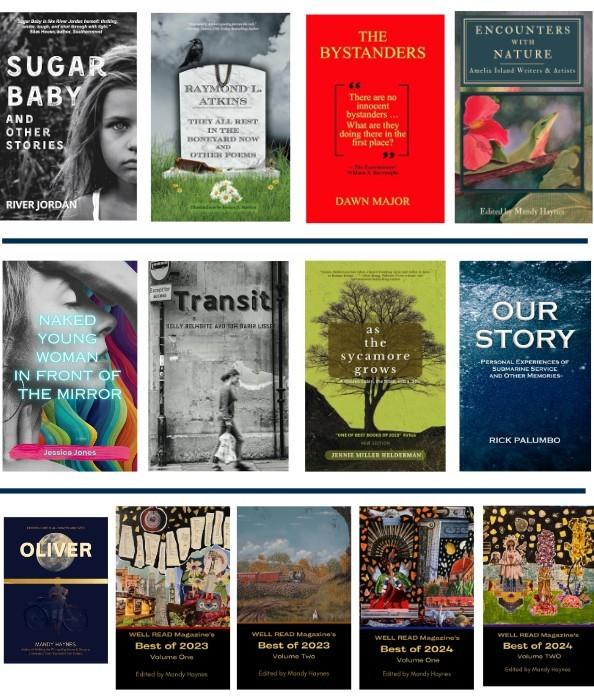





You come to the city because your passion called you here. Whatever that passion may be. That thing you love. And you wander out into the streets searching for a place to pull up a stool, order a drink, chat with the bartender about all things divine.
Welcome to God On The Rocks. Serving up great drinks and soulful conversations since time began.





I’m looking for Authors Interviewing Authors and would love to shine a spotlight on your favorite Independent Bookstores, Book Sellers, Libraries, and Librarians.
These pages are a great way to let readers know who you are and they are FREE.
Send orders for ads, interviews, or the stories mentioned above, as well as any questions about the magazine to:
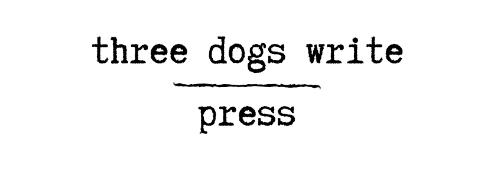

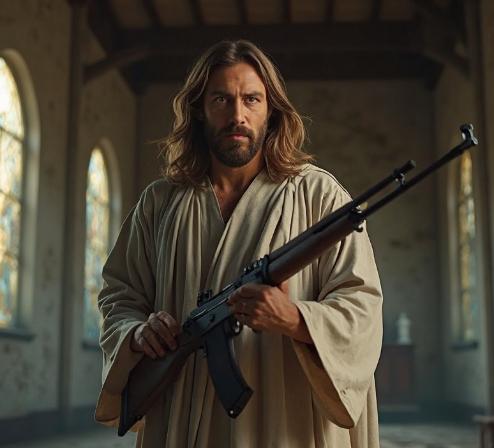
A monthly column that takes us off the page and into the life of
Change of Plans
I have changed my plan today. If you are a man of a certain age, or if you are married to one or just know one, then you realize that the changing of a plan is no small matter. Plans once made are the bones of existence. They provide structure and purpose, and they are not to be discarded on a whim. My plan today was to repaint the porch floor. We are having something called Porchfest up here in my neighborhood in a couple of weeks, and I don’t want total strangers to think that I don’t take care of my business. It's an old guy thing, and I can’t help it. So I removed all the porch furniture, and I bought the paint—which is now $50 per gallon, and thanks for that, Tariff Boy—and I laid out my painting gear so that I could get out of bed this morning, have a cup of coffee, and get to it.
Then I began reading about the assassination of Charlie Kirk, and that whole situation bothered me to such an extent that I am writing this instead. Don’t worry. When I finish, I will begin the planning process for tomorrow. As you may know, a plan can be postponed but never canceled outright.
When I first started seeing posts about Charlie Kirk, I have to admit that I had no idea who he was. This is not surprising for me,
because he was a rising Right-wing Conservative Christian media star, and as a Left-wing bleeding-heart baby-killing trans-loving Communist-or-at-the-very-least-Socialist Liberal American, I would drive off the road and into the ditch to avoid listening to such. But, since the hue and cry over Charlie was so pervasive, I did some research, and the opinions about him seemed to fall into one of two categories. About half of the internet believed that he was the little brother of Jesus sent here from on high to bring us all back to God, and the other half seemed to think that he was a nasty little shit who reaped what he had sown. There was no middle ground that I could find. Keep this fact in mind. It is important.
Before I go any further, let me tell you my position on his assassination. It was yet another of the non-stop daily horrors that we as Americans continue to face in these, the latter days of the American Dream. It was a senseless tragedy in a sea of senseless tragedies brought about by anger, hatred, hopelessness, and easy access to the means of destruction. In this country, around 50,000 people per year die from gun violence. 50,000 people per year. This is an appalling number, but if you need it put into perspective, I will. Every single year, about as many people—men, women, and children—are killed in this country as were Americans killed during the entire Vietnam War (1955-1975).
You might be thinking at this point that I am going to talk about gun control, but I’m not. There is no point. We will NEVER have meaningful gun restrictions in this country. Too many people love their guns too much. Too many politicians have been bought and
paid for. Too much money is at stake. Too many Christians have tied guns to Jesus somehow, which is a connection I just can’t see no matter how much I squint. It is a sickness with no cure, I am afraid, a cancer that will eventually wipe us out as a unified country. I have this image in my mind of the last two Americans facing off with each other. One shoots the other, and then there is one. The sole survivor then gets depressed because he has no one to talk to and subsequently shoots himself. And then there are none.
So for now we will have to rely on that old chestnut, thoughts and prayers, which if we are honest is not a very effective method of keeping people alive. On average, 140 Americans find themselves on the wrong end of a gun every single day. After the obligatory thoughts and prayers are sent into the ether, the next day another 140 souls are sent to their rewards.And on and on and on, day after day. So clearly thoughts and prayers don’t work, but I am certain they are a comfort to the survivors of any particular shooting as they look at the casket—most likely a closed one— filled by their child, or their husband, or their wife.
If you go to the Post Office today, you will see that the flag is at half-mast. This posthumous honor is being paid to Charlie Kirk, and I have no problem with this. We should respect the dead when possible. Trump was quick to bestow this honor because in the Kirk assassination he saw an opportunity to fan the flames of outrage under his MAGAs by giving them a visible symbol. My issue with the flag has to do with the other 33,000 Americans who
have died by gun violence since Trump took office this time on January 20. Did I miss their flags at half-mast? Were their deaths not worthy of this honor? Surely at least the children killed in school shootings this year deserved their flags?
If guns are the cancer that is killing America, then social media is the bad oncologist who treats until the money runs out before relinquishing those under their care to the local hospice after first letting the social worker or the nurse break the bad news. Everybody out here in the land of misinformation has had an opinion, most of them have been wrong if not outright crazy, and all of them have found adherents. There is a phenomenon that has to do with anything in print. Basically, once an item of information (or misinformation) is rendered into written words, its credibility goes up a notch. Back in the day, when printed words were actually physically printed, this assumed legitimacy had at least some truth to it.The field of journalism relied upon professional reporters, and there were fact-checkers and editors employed to ensure that published information was factual. Now, anyone can write anything, and these electronic words often carry a great deal of weight.
Some of the social media posts that I have read were awful, with the hatred just oozing from them. Others were just nuts. SOME WEREALLIN CAPS,AS IF HOLLERINGATUSWOULD GET THE POINT ACROSS MUCH MORE EFFECTIVELY. A few were so complicated and convoluted as to be sort of funny. One of the opinions I read stated that if Charlie had been armed, this
would not have happened. Sigh. Charlie Kirk was killed by a single shot to the carotid artery from 200 yards away by a young man who could shoot. One shot, one kill.Anine-millimeter pistol would not have saved him. Another post stated that cars also kill people before asking if we should outlaw cars. My thoughts on that one are that if an automaker produces a vehicle that can hit a carotid artery at 200 yards then yes, that car should be outlawed.
Another post I read posited the conspiracy theory that Trump himself had ordered the hit, because nothing enhances a political position—or causes people to forget all about Epstein—so much as the creation of a martyr.This was either a left-wing post, or a rightwing post disguised as a left-wing post, or the fictional creation of a Chinese or Russian AI bot, or none of these, and now I have a headache. The theory came complete with a Delta Team sniper, an unmarked jet, and orders to the FBI to look the other way (as if the FBI needs any help these days being incompetent). All it needed was a grassy knoll.
This leads us to the Trump response to Charlie Kirk’s assassination. Charlie had not yet hit the ground before Trump began hollering about left-wing conspiracies and Democratic death-squads. When the assailant was finally captured, it turned out that he was a young, white, educated Christian Republican who had been raised in the gun culture by his pastor father. His parents were also Trump supporters. First off, and I mean no disrespect to anyone with this observation, but thank God he was not Black, Hispanic, Muslim, Trans, or a Democrat. We would be in the
middle of a nationwide riot right now, with people being burned at the stake. But the assassin was a white kid, and not to be deterred, Trump doubled-down by saying that leftist liberal views had tainted this young man’s thought process. Whenever I hear a spin of this magnitude, I am reminded of the game we used to play called Twister. You and I can see it as a pathetic attempt to alter reality, but unfortunately for us and for all reasonable, thinking people, there are about 33,000,000 folks out there who have already taken it as gospel.
I guess I will finish with a few of Charlie Kirk’s quotes. As I said, I didn’t know him or even know of him until he got shot and killed so I guess I will have to let his words speak for him.
"We must also be real. We must be honest with the population. Having an armed citizenry comes with a price, and that is part of liberty... We need to be very clear that you're not going to get gun deaths to zero. It will not happen. But I think it's worth it. I think it's worth to have a cost of, unfortunately, some gun deaths every single year, so that we can have the SecondAmendment."
"I can't stand the word empathy, actually. I think empathy is a made-up, new age term that does a lot of damage."
"A man who calls himself trans is wearing 'woman face,' no different than I would wear Black face trying to be a Black person. It's assuming an identity that isn't yours."
“Black women do not have the brain processing power to otherwise be taken really seriously. You had to go steal a white person's slot to go be taken somewhat seriously."
“Gun control, like vaccines and masks, is focused on making people feel safe by taking freedoms away from others. Don’t fall for it.”
"If I see a Black pilot, I'm going to be like, 'Boy, I hope he's qualified.'"
"Democrat women want to die alone without children."
"Now, I will say that for future retirees, people under the age of 45, we should absolutely raise the retirement age. I'm going to say something very provocative. I'm not a fan of retirement. I don't think retirement is biblical.”
Wow. Those are some quotes.Anyway, this essay was what was on my mind this morning. Please excuse its rambling nature. If an English 1102 student had submitted it, they would have earned an 88 at best. Maybe an 85. Whoops, that was a sentence fragment. Now we are down to an 80, and I had better quit while I am ahead.
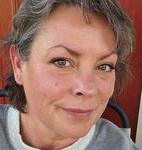
Mandy Haynes, Editor-in-Chief, Designer, Publisher, & Founder
Mandy Haynes is the author of two short story collections, Walking the Wrong Way Home, Sharp as a Serpent's Tooth Eva and Other Stories, and a novella, Oliver. Her stories have appeared in several anthologies and literary journals. She is the editor and designer of Encounters with Nature, a collaboration ofAmelia Island Writers and Artists, The WELL READ's Best of 2023 anthologies, and also the co-editor of The Best of the Shortest: A Southern Writers Reading Reunion.



Raymond L.Atkins, Contributing Editor for OFF THE PAGE
Raymond L. Atkins resides in Rome, Georgia, on the banks of the Etowah River in an old house with a patient wife and a lazy cat. His hobbies include people-watching, reading, and watching movies that have no hope of ever achieving credibility. His first novel, The Front Porch Prophet, was published in 2008 and was awarded the Georgia Author of the Year Award for First Novel. Camp Redemption, was awarded the Ferrol Sams Award for Fiction and the 2014 Georgia Author of the Year Award for Fiction. Sweetwater Blues was a Townsend Prize nominee, the 2015 GeorgiaAuthor of the Year runner-up for fiction, and the 2016 selection for One Book, Many Voices. South of the Etowah, his first creative non-fiction book, was released in 2016. It was nominated for a Push-cart Prize and was the 2016 GeorgiaAuthor of theYearAward runner-up for essay. In 2017, he was awarded the Lifetime Achievement Award by the Georgia Writers Association.


Robert Gwaltney, Contributing Editor for INSIDE VOICES
Robert Gwaltney, award winning author of southern fiction, is a graduate of Florida State University. He resides in Atlanta Georgia with his partner, where he is an active member of the Atlanta literary community. Robert’s work has appeared in such publications as The Signal Mountain Review and The Dead Mule School of Southern Literature. His debut novel, The Cicada Tree, won the Somerset Award for literary fiction. In 2023, Gwaltney was named Georgia Author of the Year for first novel.

Meet the staff


Ann Hite, Contributing Editor for MOUNTAIN MAGIC
In September of 2011 Gallery, an imprint of Simon & Schuster, published Ann Hite’s first novel, Ghost on Black Mountain. In 2012 this novel was shortlisted for the Townsend Prize, Georgia’s oldest literary award. In the same year, Ghost on Black Mountain won Hite Georgia Author of the Year. She went on to publish four more novels, a novella, memoir, and most recently Haints On Black Mountain: A Haunted Short Story Collection from Mercer University Press. In December 2022, Haints On Black Mountain was one of ten finalist for the Townsend Prize. The collection was a Bronze Winner in Foreword IndieAward 2023 and GeorgiaAuthor of the Year Second Place Winner for Short Stories 2023. Ann received a scholarship to the Appalachian Witers Workshop Hindman Settlement in the summer of 2020 and was invited back in 2021. Her passion for history influences all her work.


Jeffrey Dale Lofton, Contributing Editor for INSIDE VOICES
Jeffrey Dale Lofton hails from Warm Springs, Georgia. His years telling the stories of playwrights and scriptwriters as a stage and screen actor taught him the pull of a powerful story arc. Today, he is Senior Advisor at the Library of Congress, surrounded by books and people who love them. Red Clay Suzie is his debut novel, a fictionalized memoir written through his lens—gay and living with a disability—in a conservative family in the Deep South. It was longlisted for the 2023 Center for Fiction First Novel Prize and awarded the Seven Hills Literary Prize for Fiction, among other distinctions.

Dawn Major, Contributing Editor for TRIPLIT with D Major
Dawn Major’s debut novel, The Bystanders, was named finalist for 2024 GeorgiaAuthor of the Year for Best First Novel. Major is an associate editor at Southern Literary Review and advocates for southern authors via her blog, Southernread. Her literary awards include the following: the Dr. Robert Driscoll Award, Reinhardt University’s Faculty ChoiceAward, and the James Dickey Review Literary Fellowship. Major is a member of the William Gay Archive and has edited and helped publish the works of the late author. She serves on the board for Broadleaf Writers Association and is also a member of M’ville, anAtlanta-based artist salon. Major lives in the Old Fourth Ward inAtlanta, GA and is working on her next novel, The Dandy Chronicles.

Claire Hamner Matturro , Contributing Editor for CLAIRE CONSIDERS
Claire Hamner Matturro is a former attorney, former university writing instructor, avid reader, and the author of seven novels, including four published by HarperCollins. Her poetry appears in various journals including Slant and Lascaux Review. She is an associate editor ofThe Southern LiteraryReview and lives happily in Florida with her cross-eyed rescued black cat and her husband.




Annie McDonnell, Contributing Editor forANNIEASKS
Founder of The Write Review Literary Community, Podcaster, Book Reviewer, Author Consultant and Matchmaker. She also teaches workshops on top of all of this!Annie has been introducing us to books and authors since 2006, when she began reviewing books for Elle Magazine. Proud Stiff Person Syndrome Warrior, and several other illnesses.

Susan Beckham Zurenda, Contributing Editor for THE WRITER’S EYE
Susan Beckham Zurenda taught English for 33 years on the college level and at the high school level toAP students. She is author of the award-winning Southern literary novel, Bells for Eli, and the recipient of numerous awards for her short fiction, including the South Carolina Fiction Awards, twice. Her second novel, The Girl From the Red Rose Motel (Mercer University Press, September 2023), was the recipient of the 2024 Patricia Winn Award in Southern Fiction, Gold Medal winner in the 2024 IPPY Awards for Southeast Fiction, a 2024 Pushcart Prize nominee, a Shelf Unbound 2023 Notable 100 books, and a finalist in theAmerican Book FestAwards. Susan lives in Spartanburg, SC.


Junebug Fischer by
Mandy Haynes
Junebug Fischer will be ninety-six come June. She's ready to set the record straight and let you know what really happened the summer she turned fifteen. It’s true, she killed someone, but she never killed nobody on purpose. That was purely accidental.
“I don’t know what caused me to shoot the arrow. I didn’t think about it. I just did it. Was it fear or was it pride?”
5.0 out of 5 stars One of the most compelling story/book writers in America.
“Outstanding book. Intelligent, and yet creative, in the best sense of the word. The story/book keeps you engaged right up until the final page. Great, great book!!!”
5.0 out of 5 stars Will leave you wanting more!
“Junebug Fischer is the kind of strong, feisty young lady hero we love, and Mandy's writing of her story draws you in from the start. You'll feel like you're sitting on that porch with her, and I guarantee you'll want more. Her characters come to life in all of her stories, and I recommend you read everything Mandy has written, and will write! You won't be disappointed.”
5.0 out of 5 stars A Southern Voice to Remember
“There's an echo of 'To Kill a Mockingbird' in the voice of the central character here, and I mean that as a high compliment. You'll like her after the first two sentences and root for her the rest of this short but powerful book. I don't want to give anything away. Buy it and read for yourself. 5 stars.”


